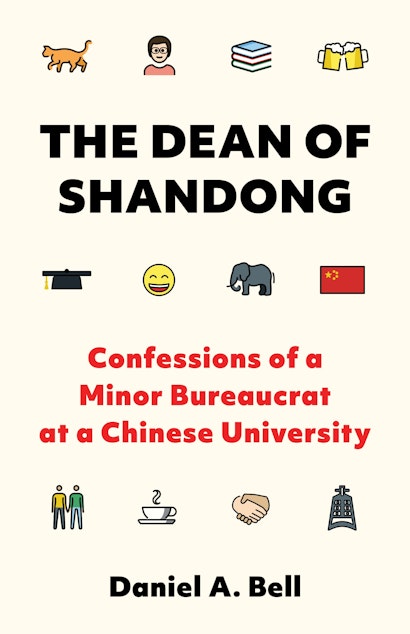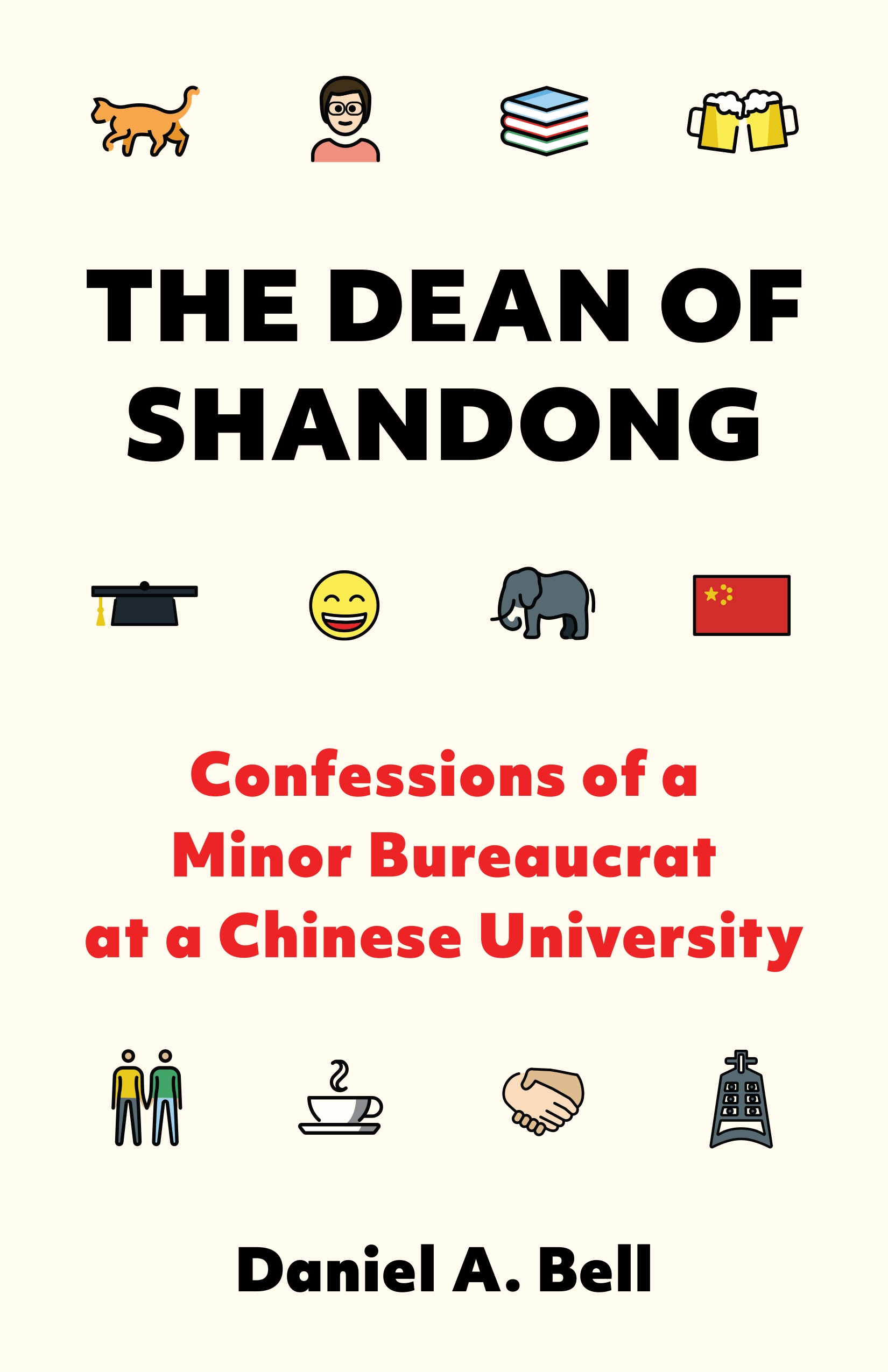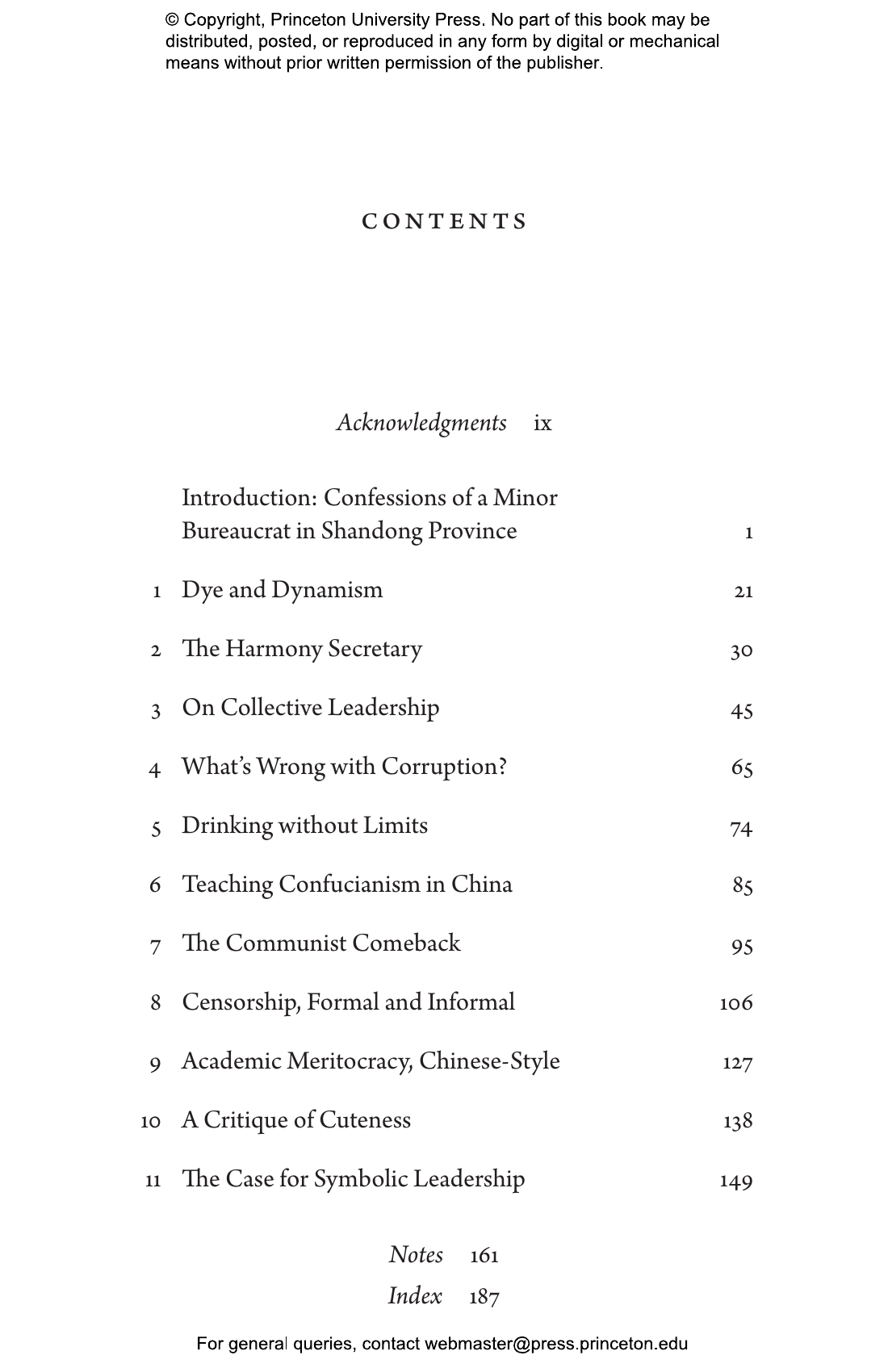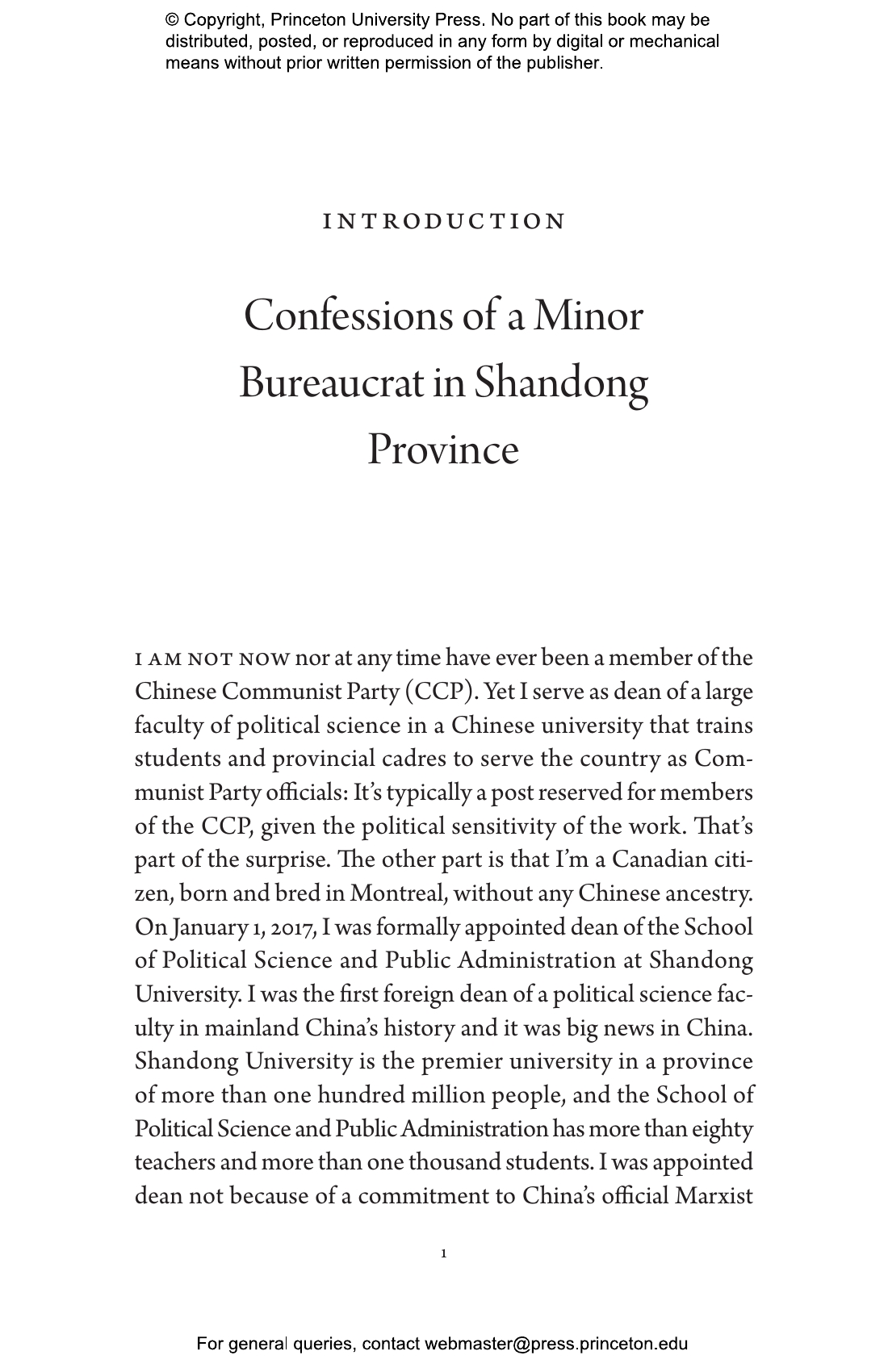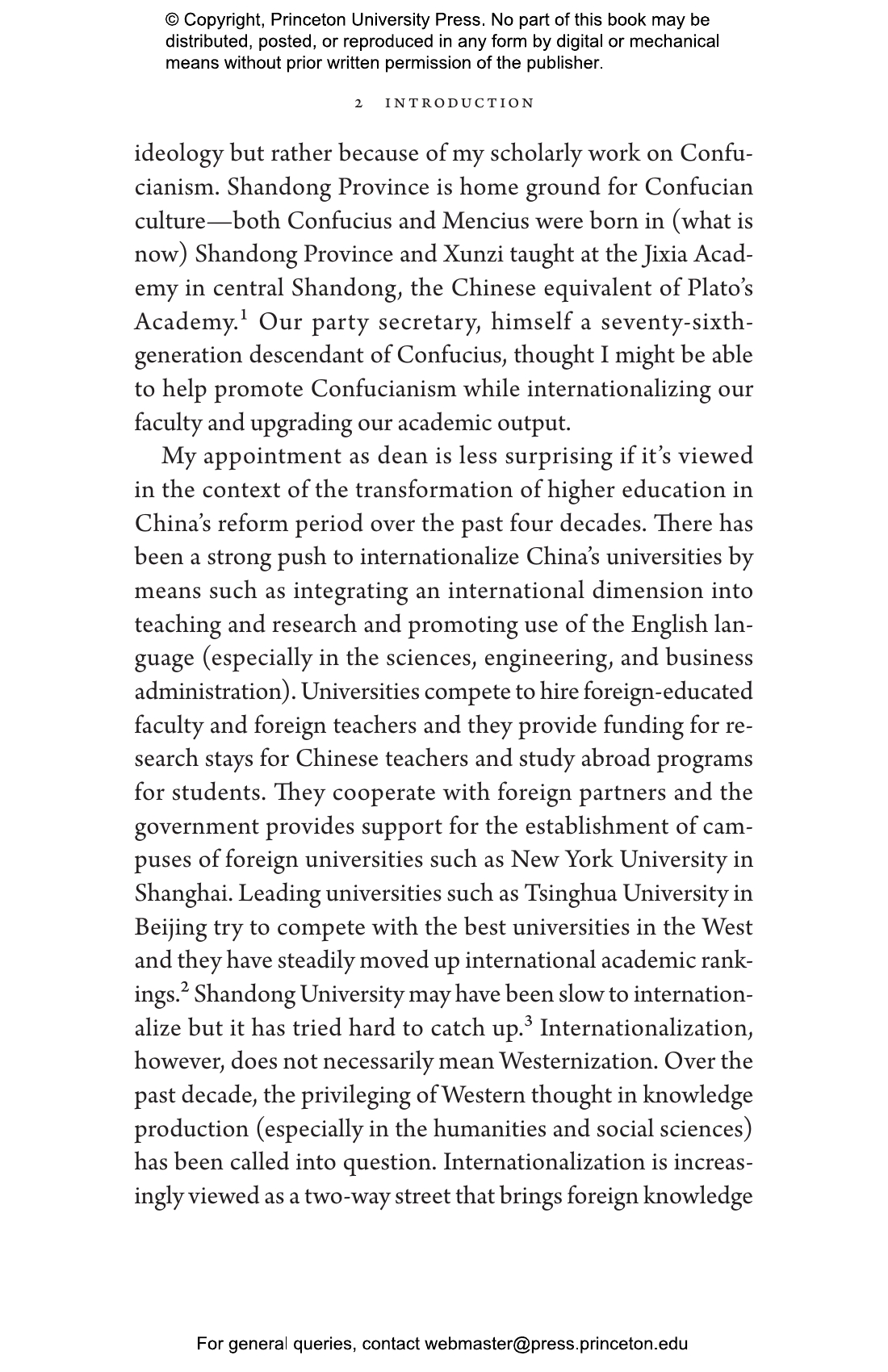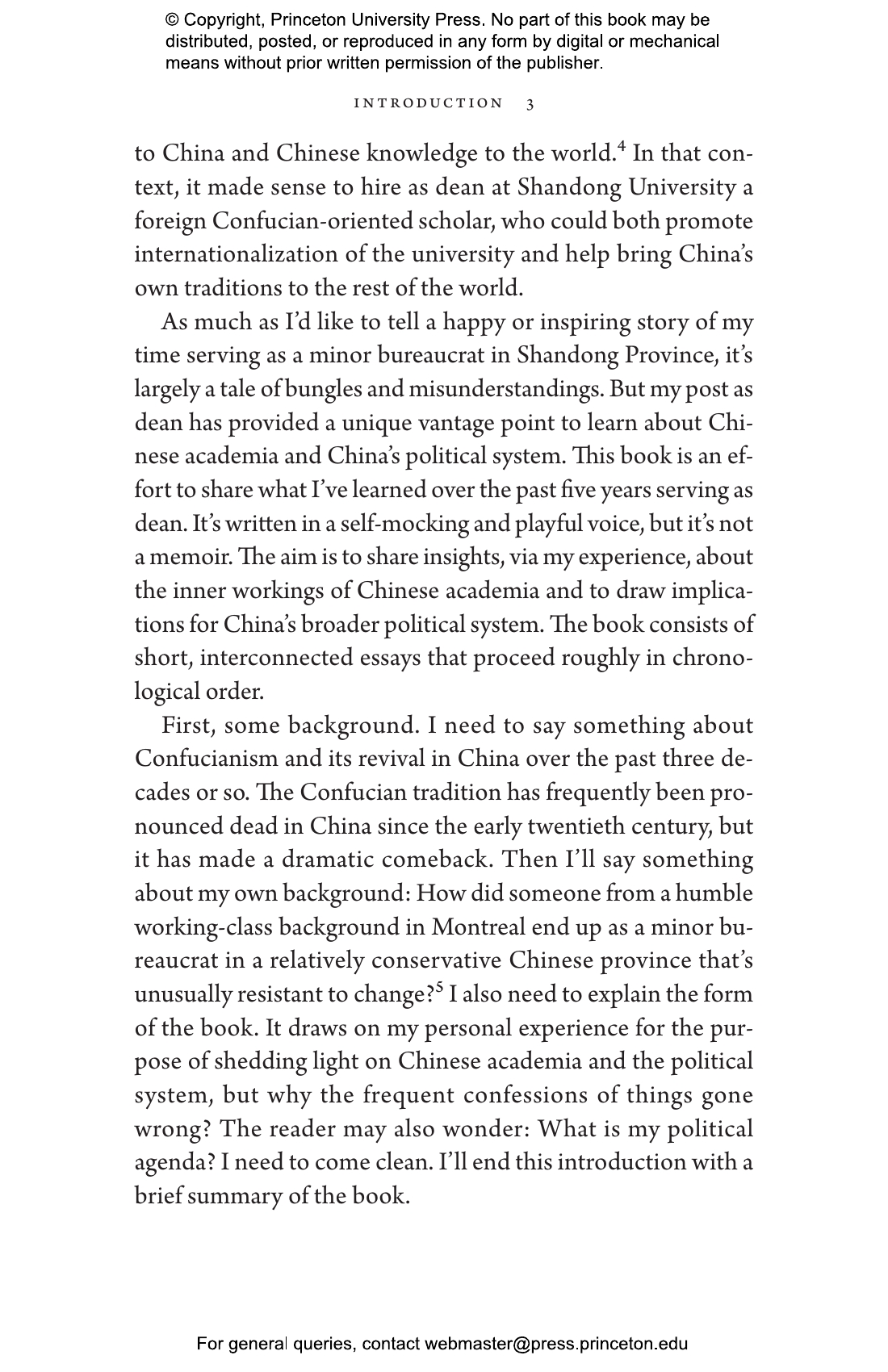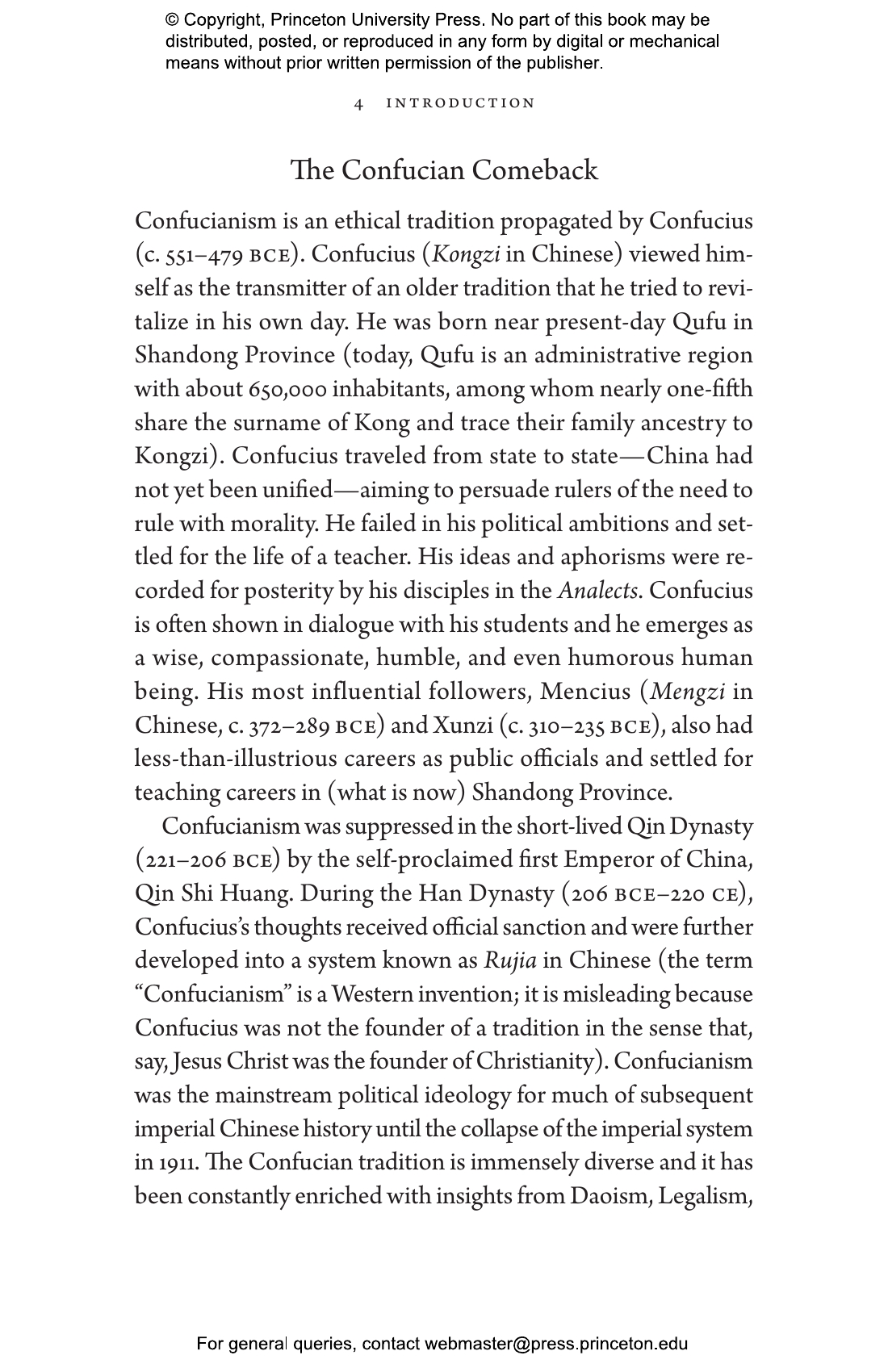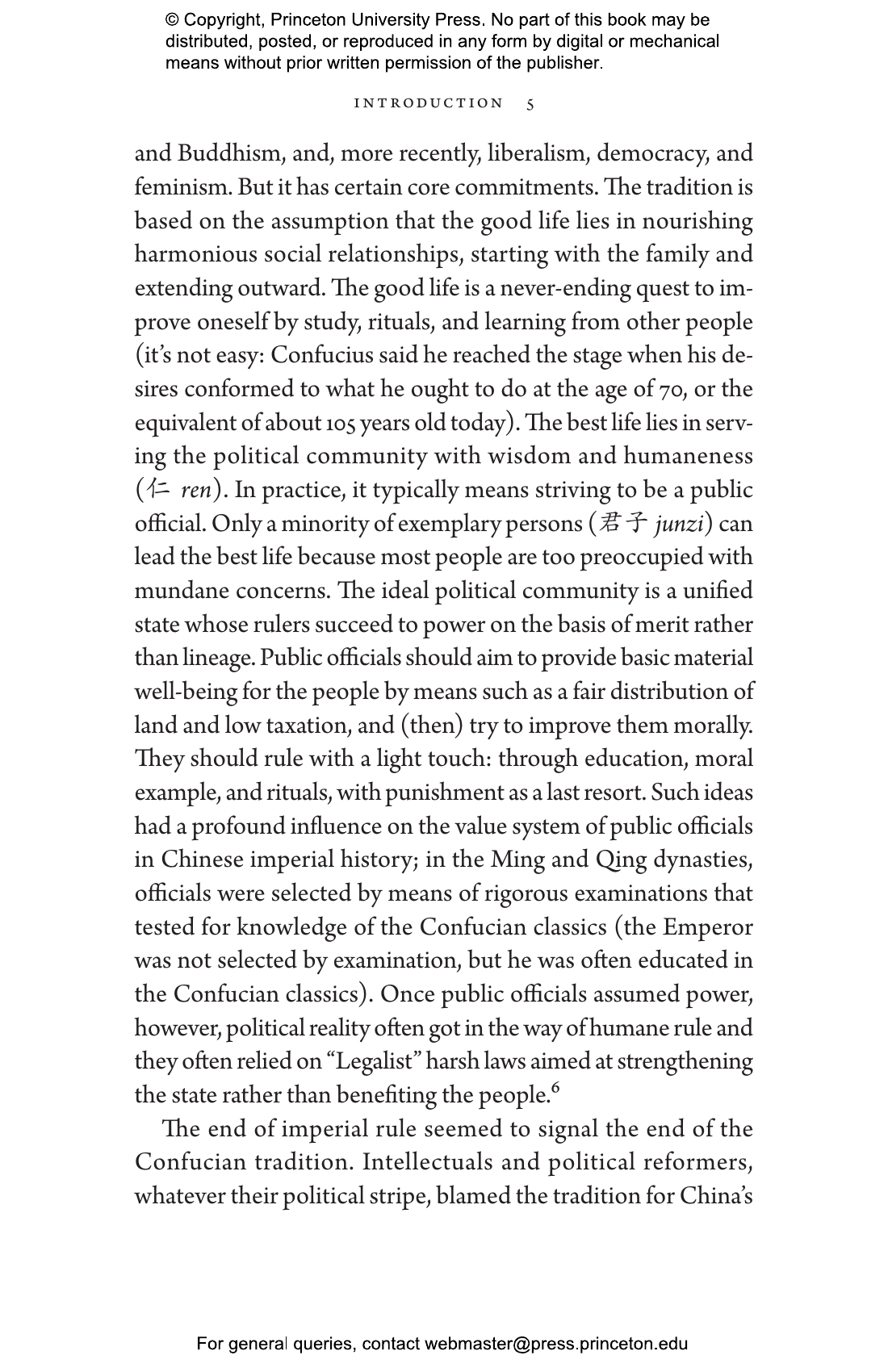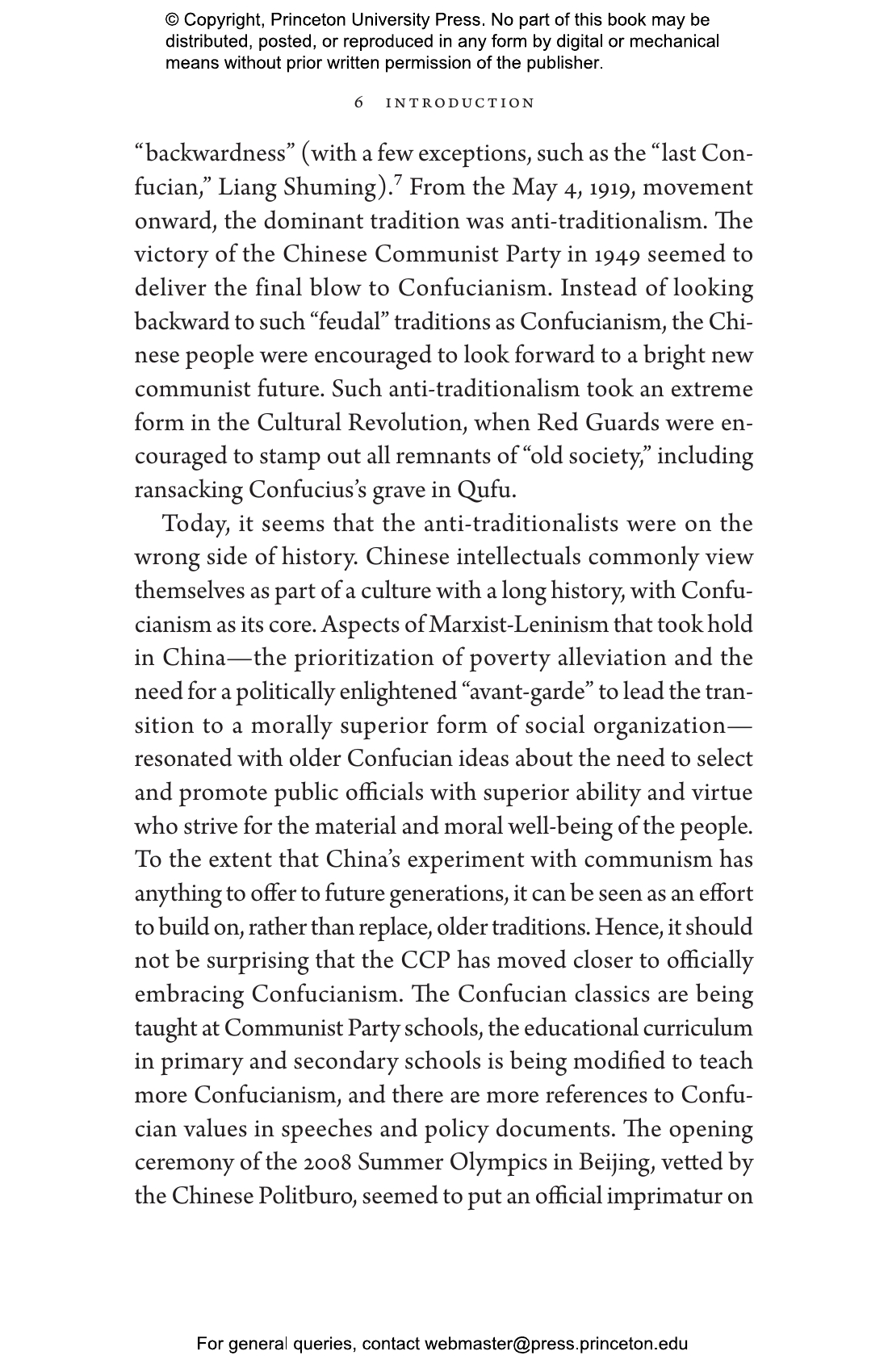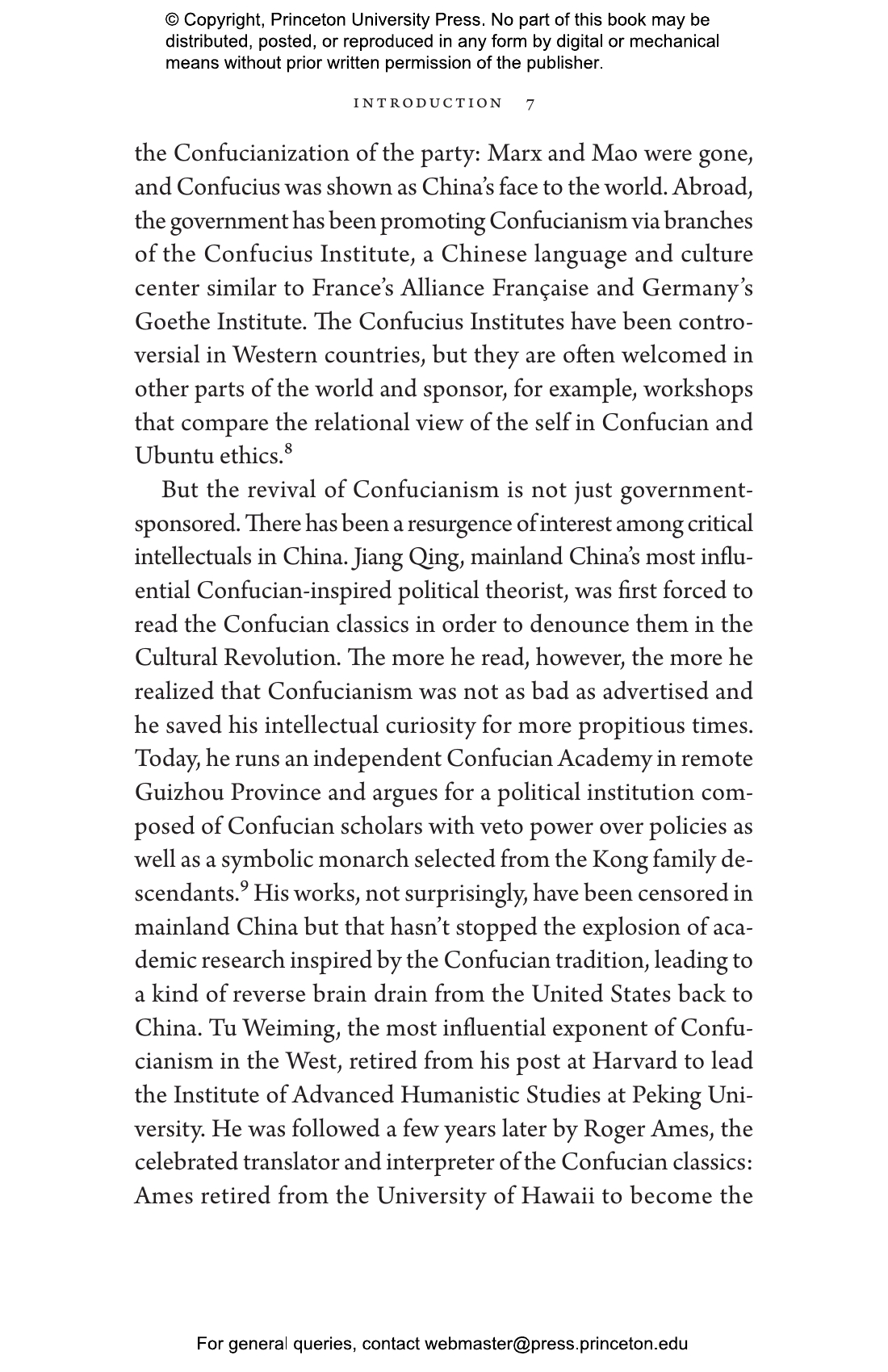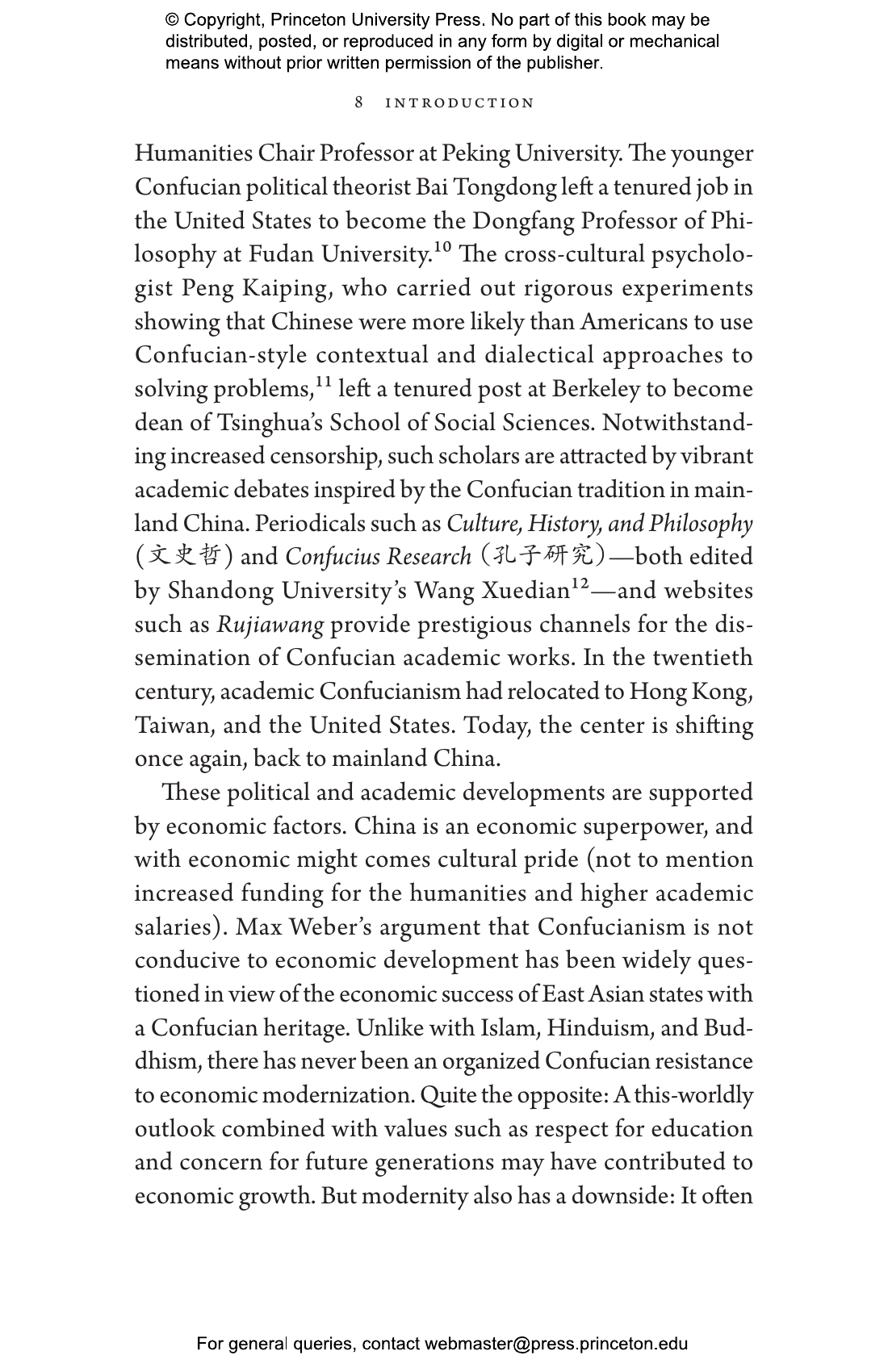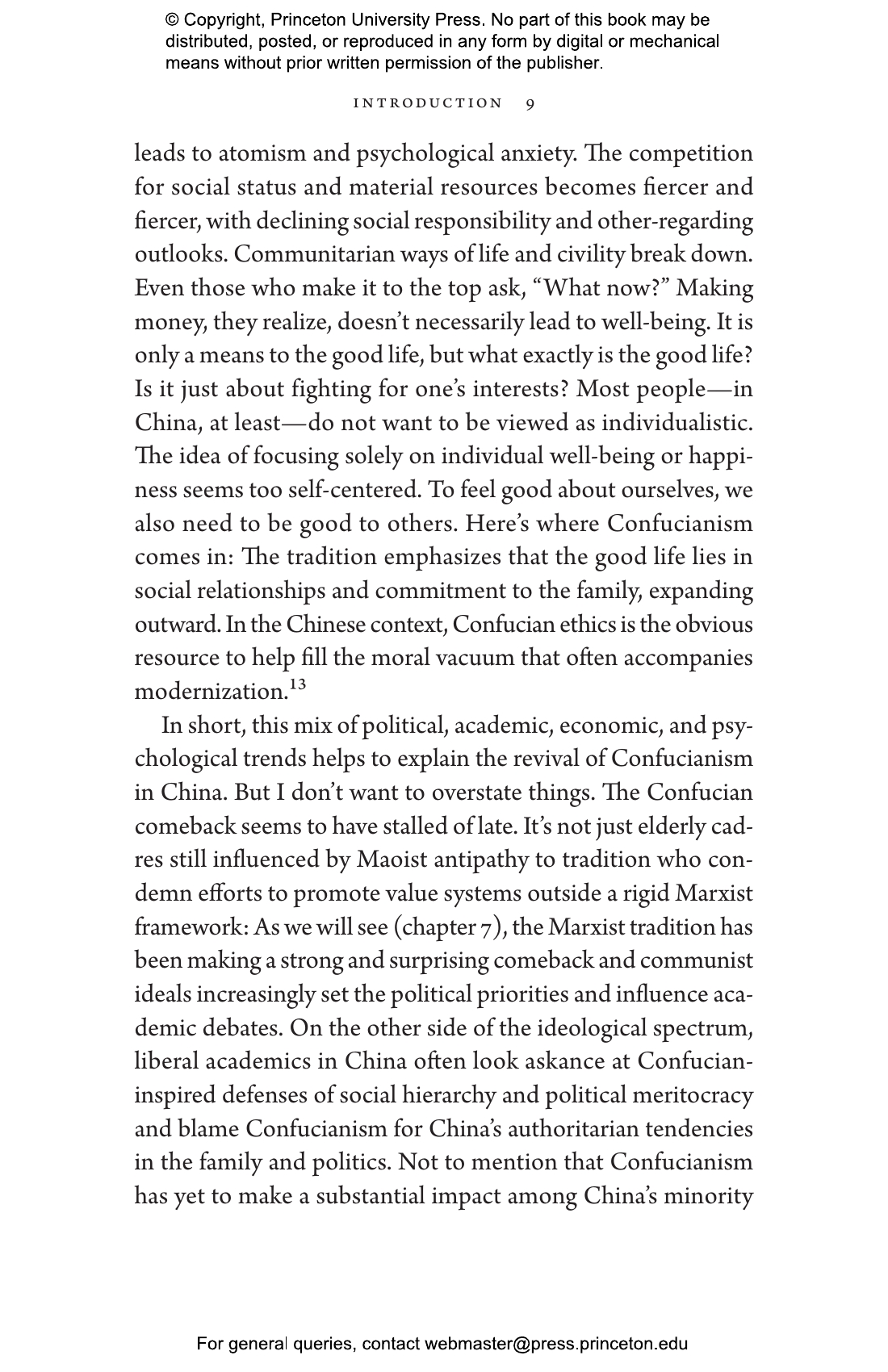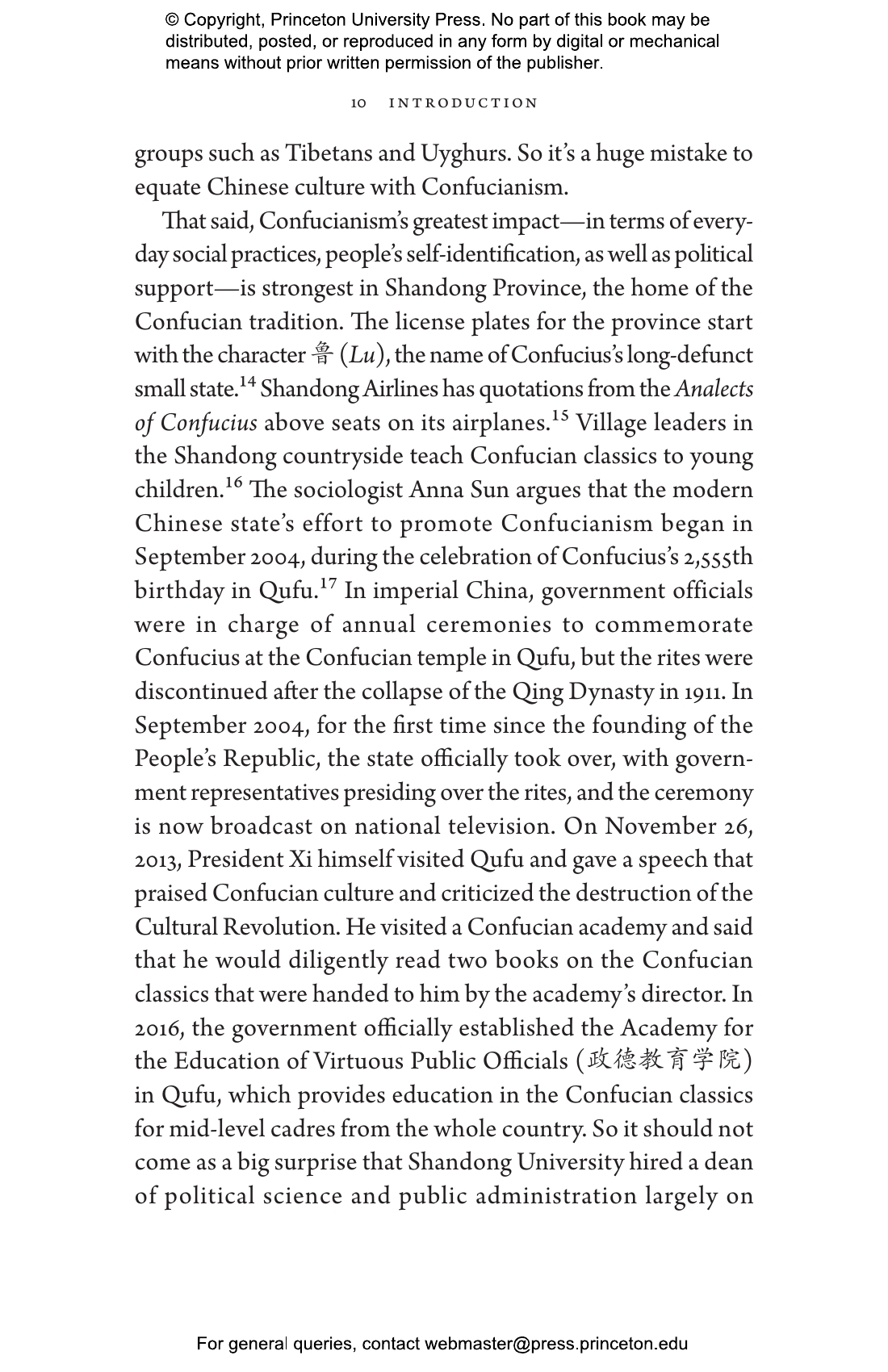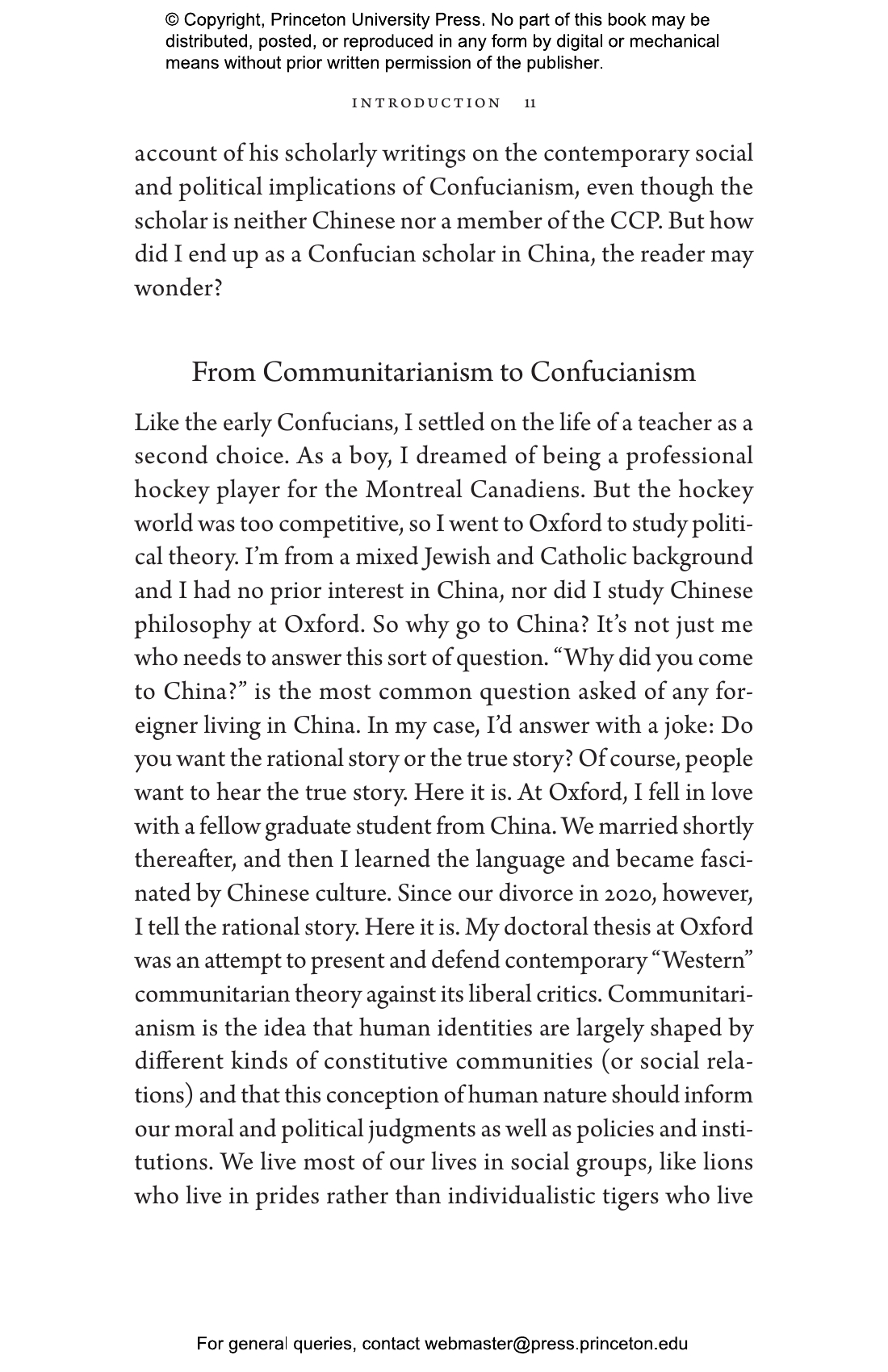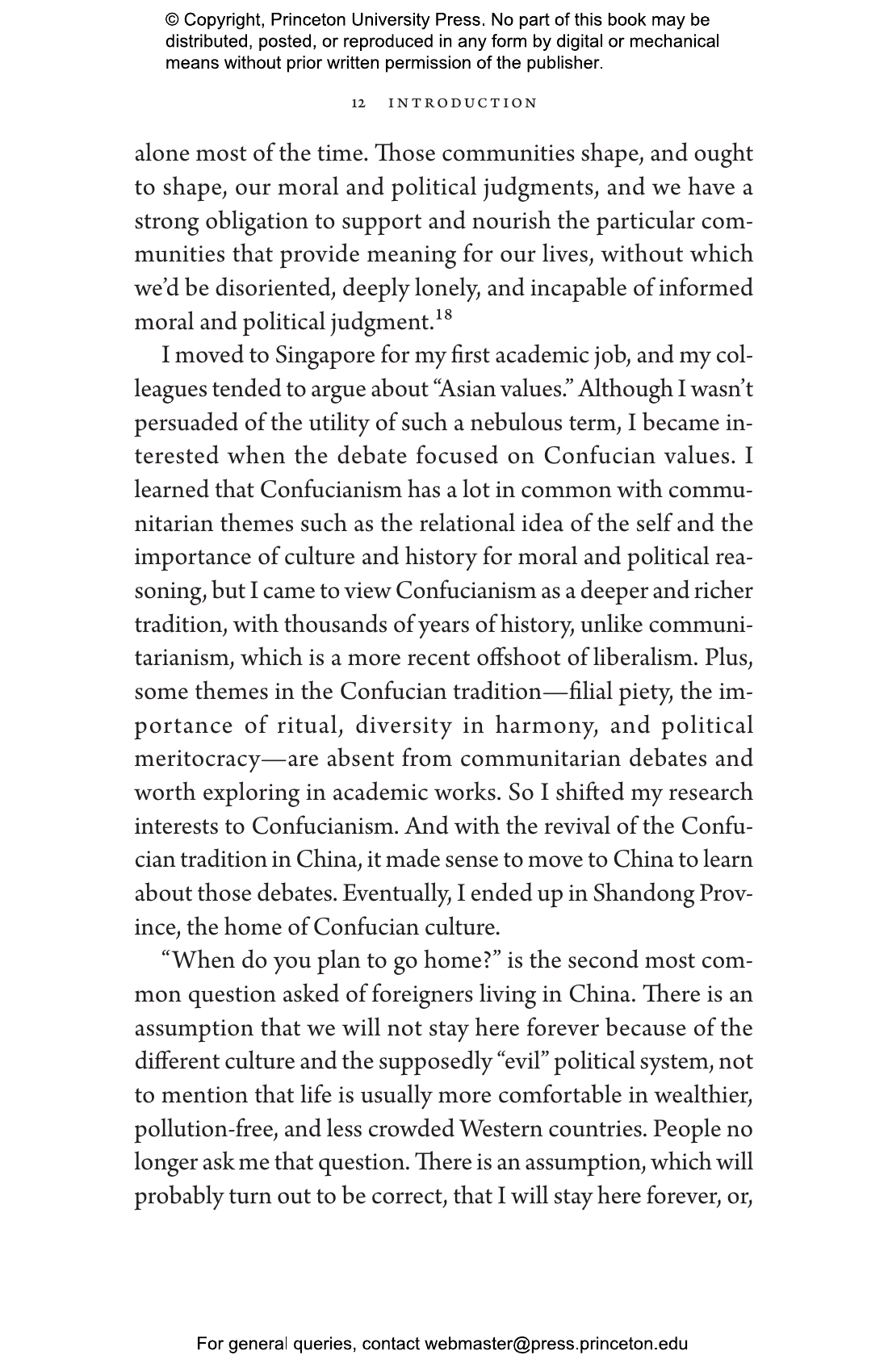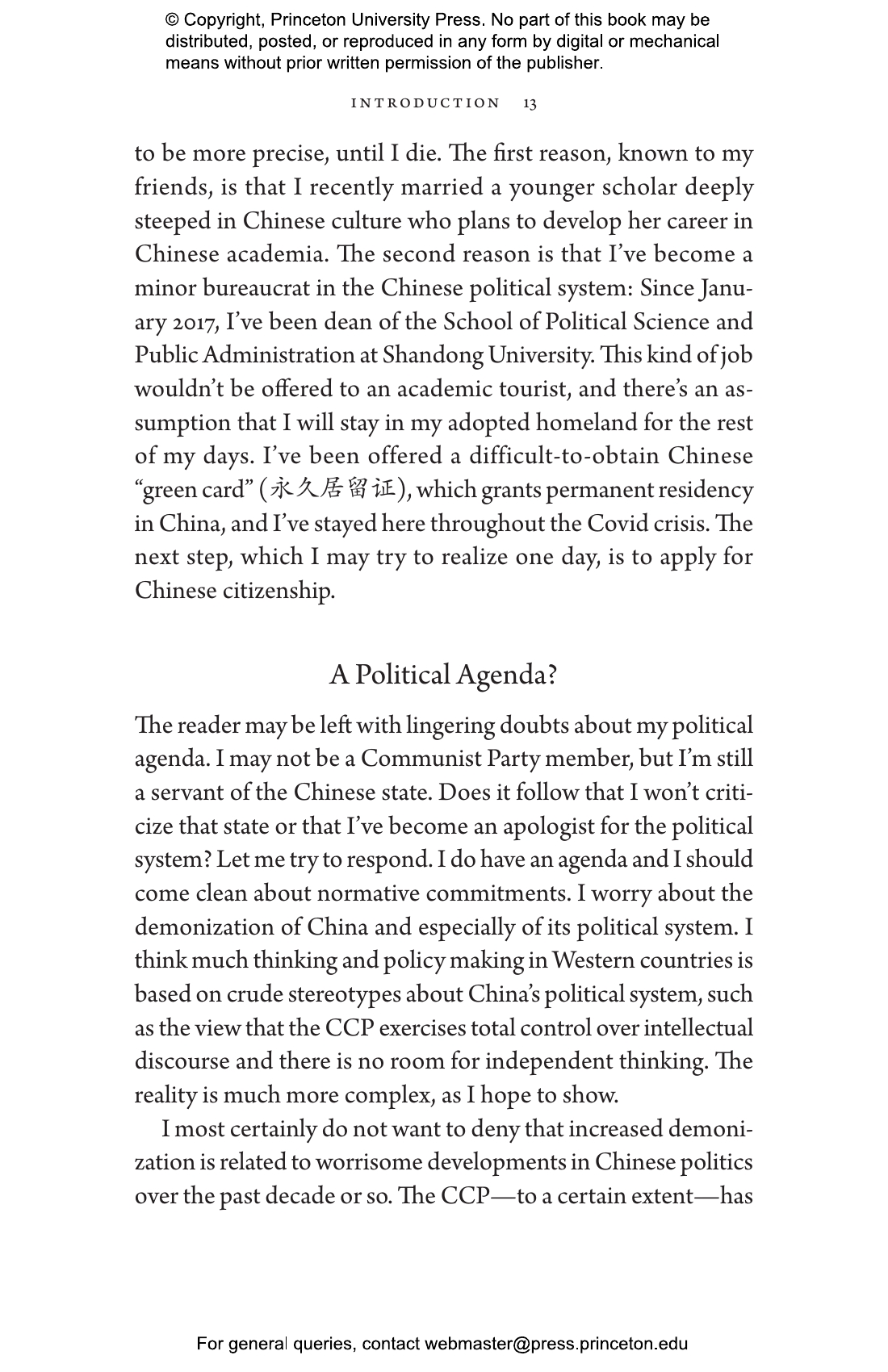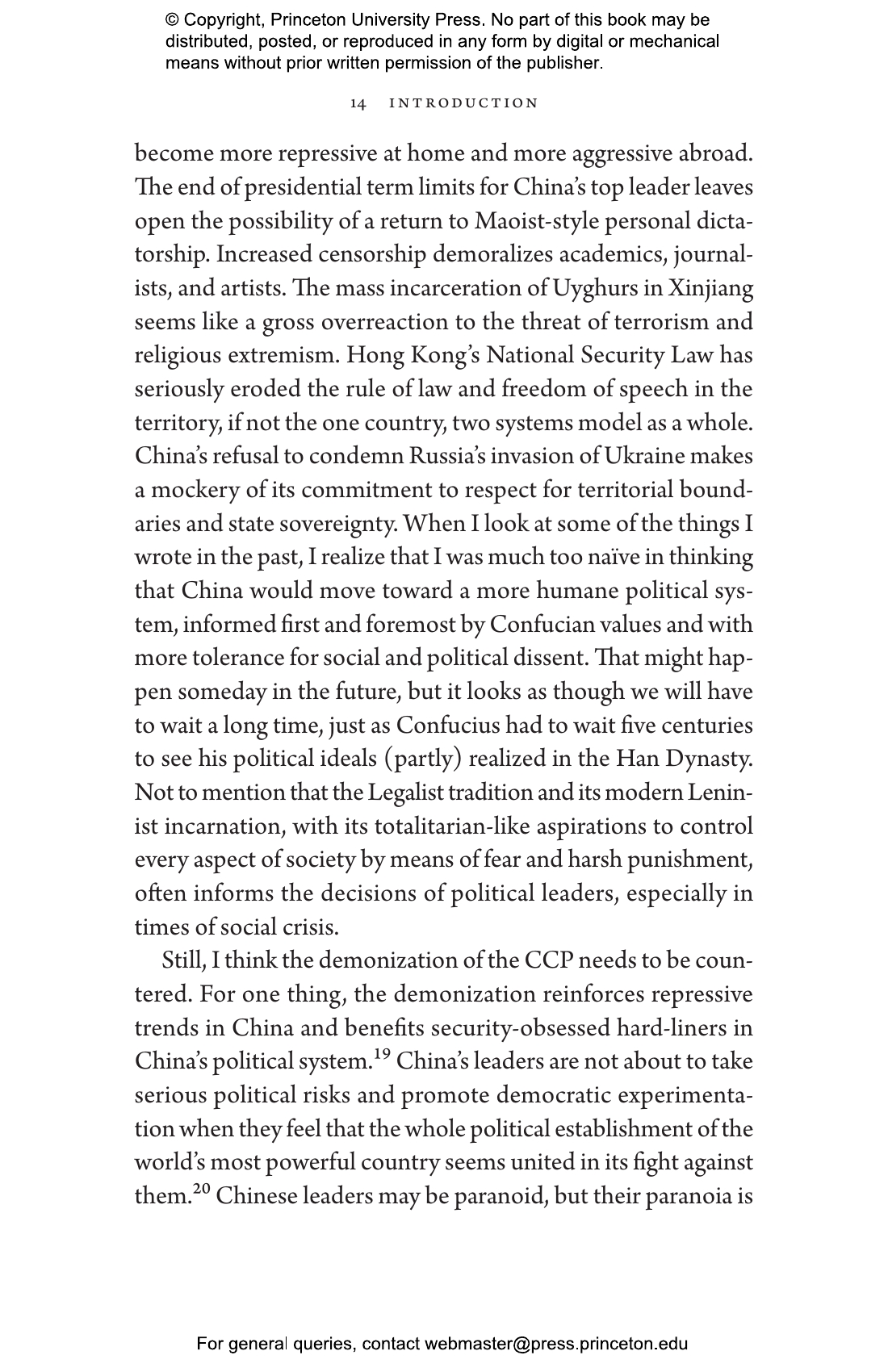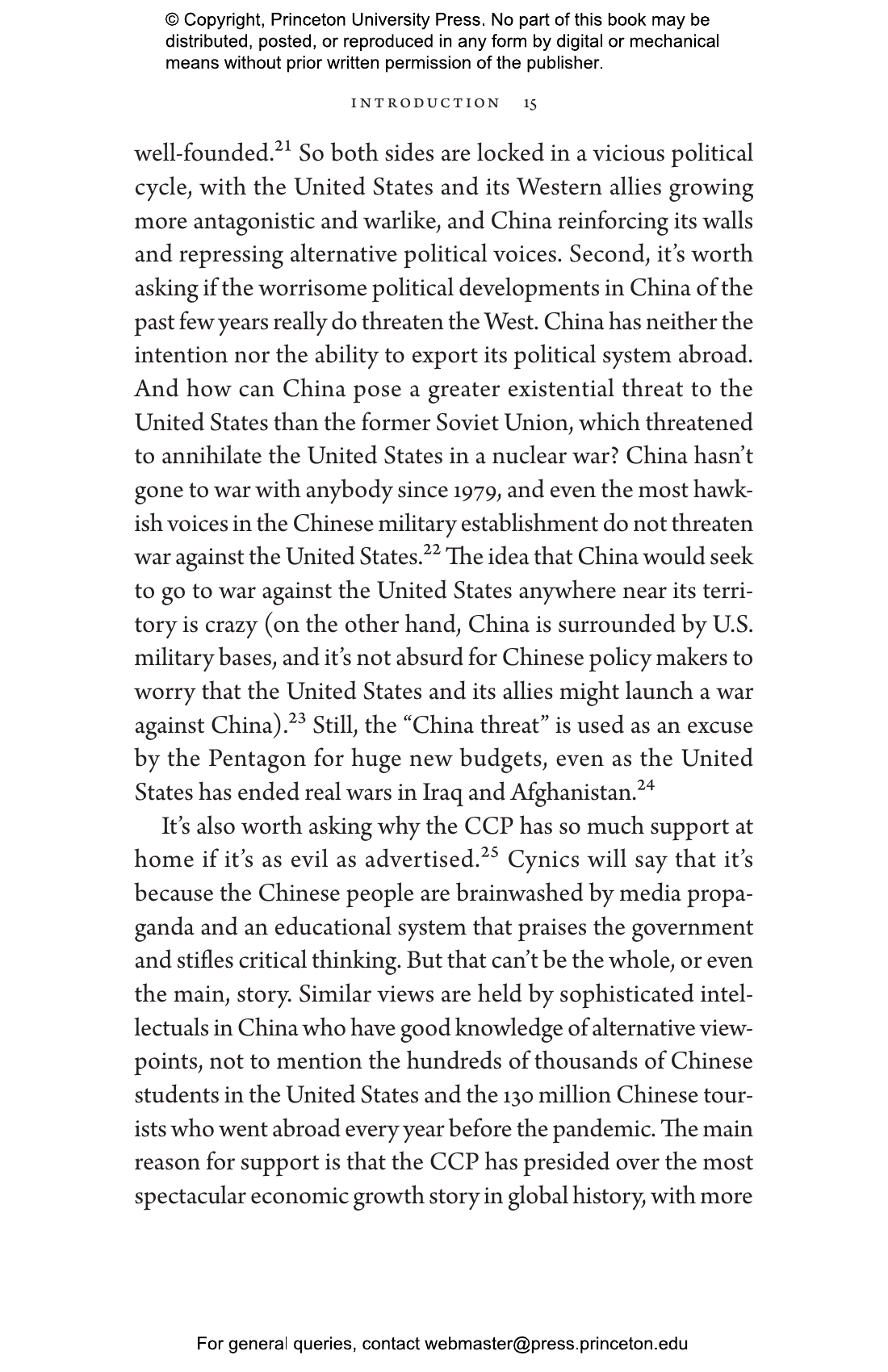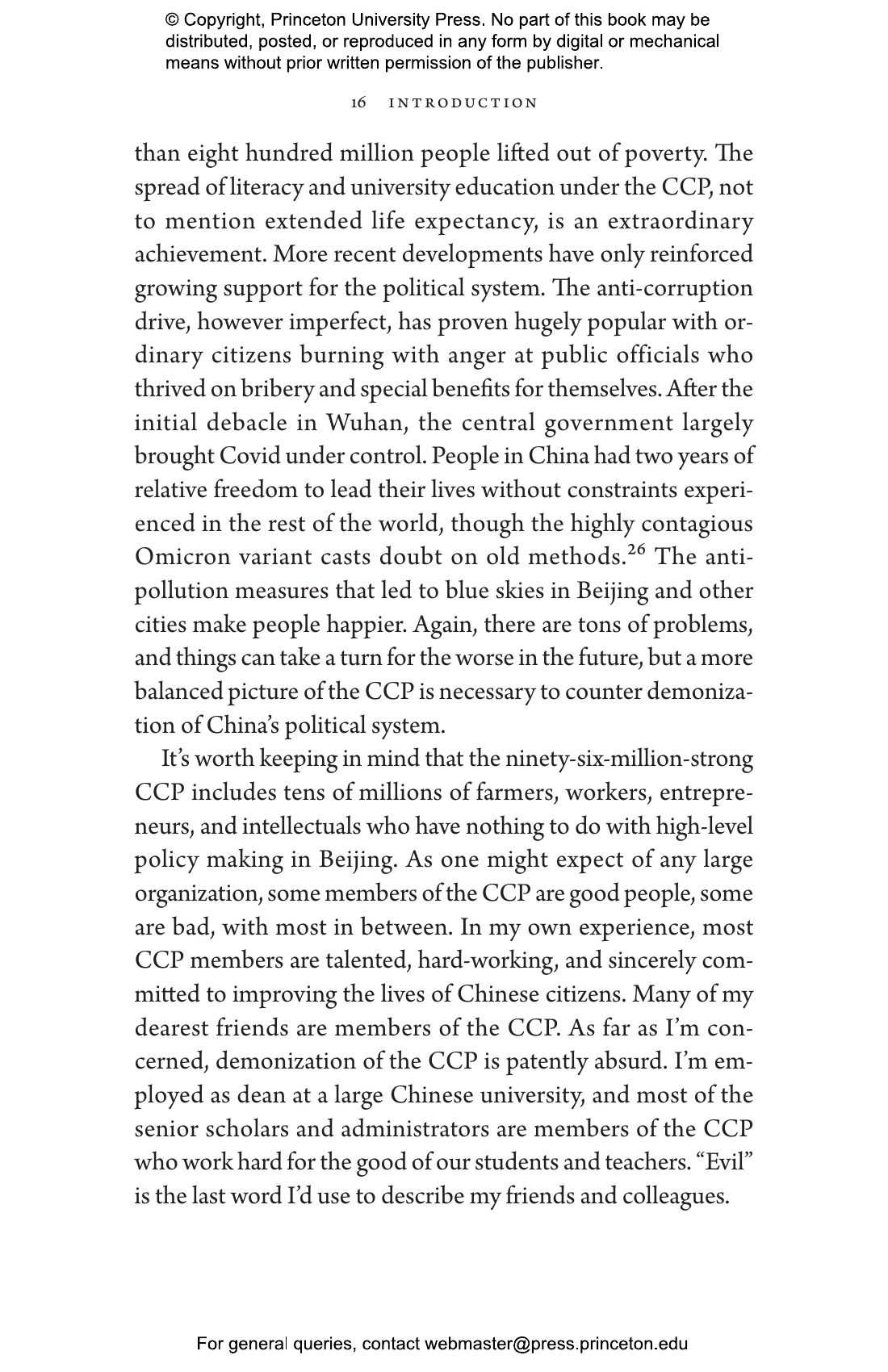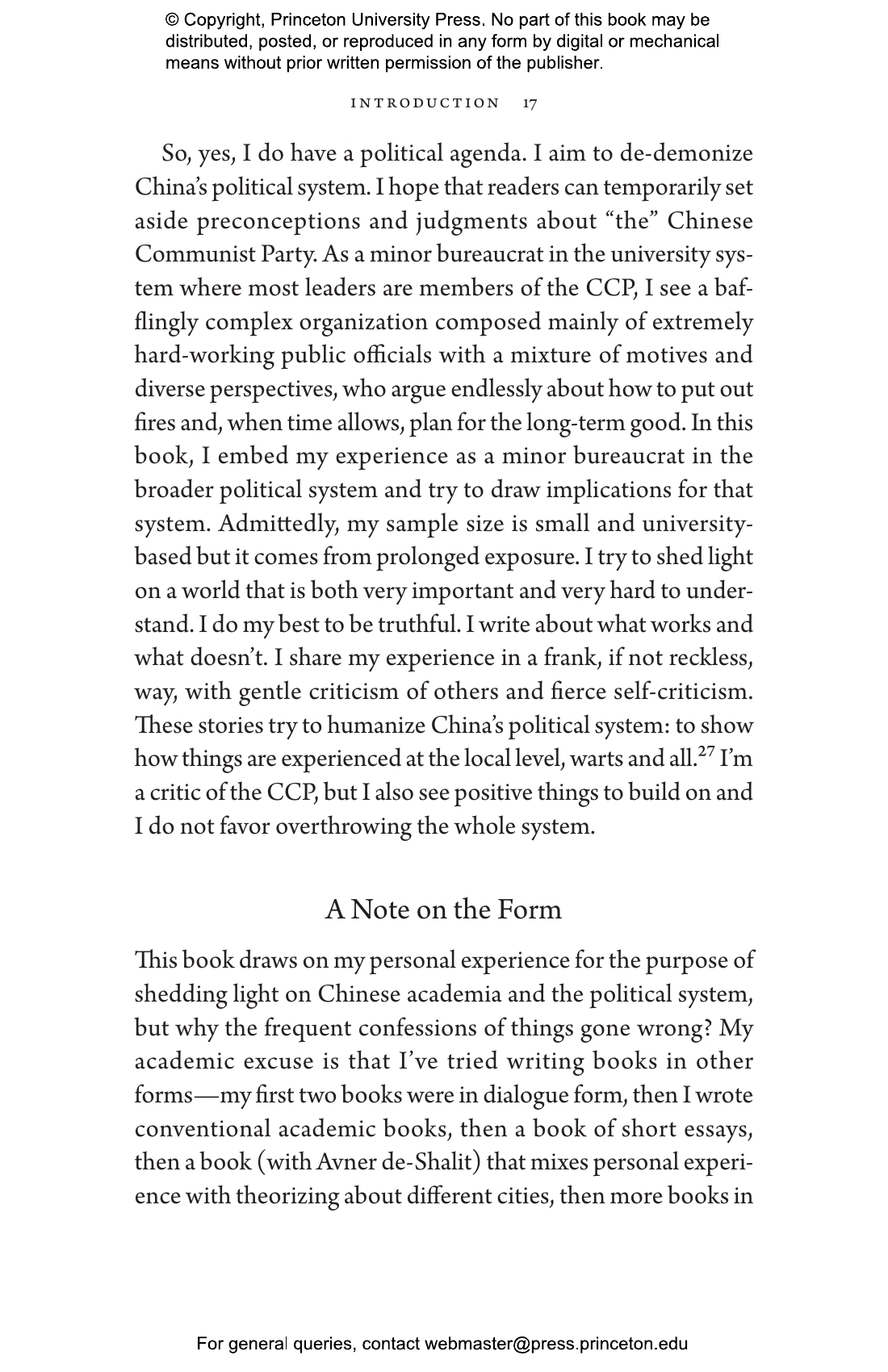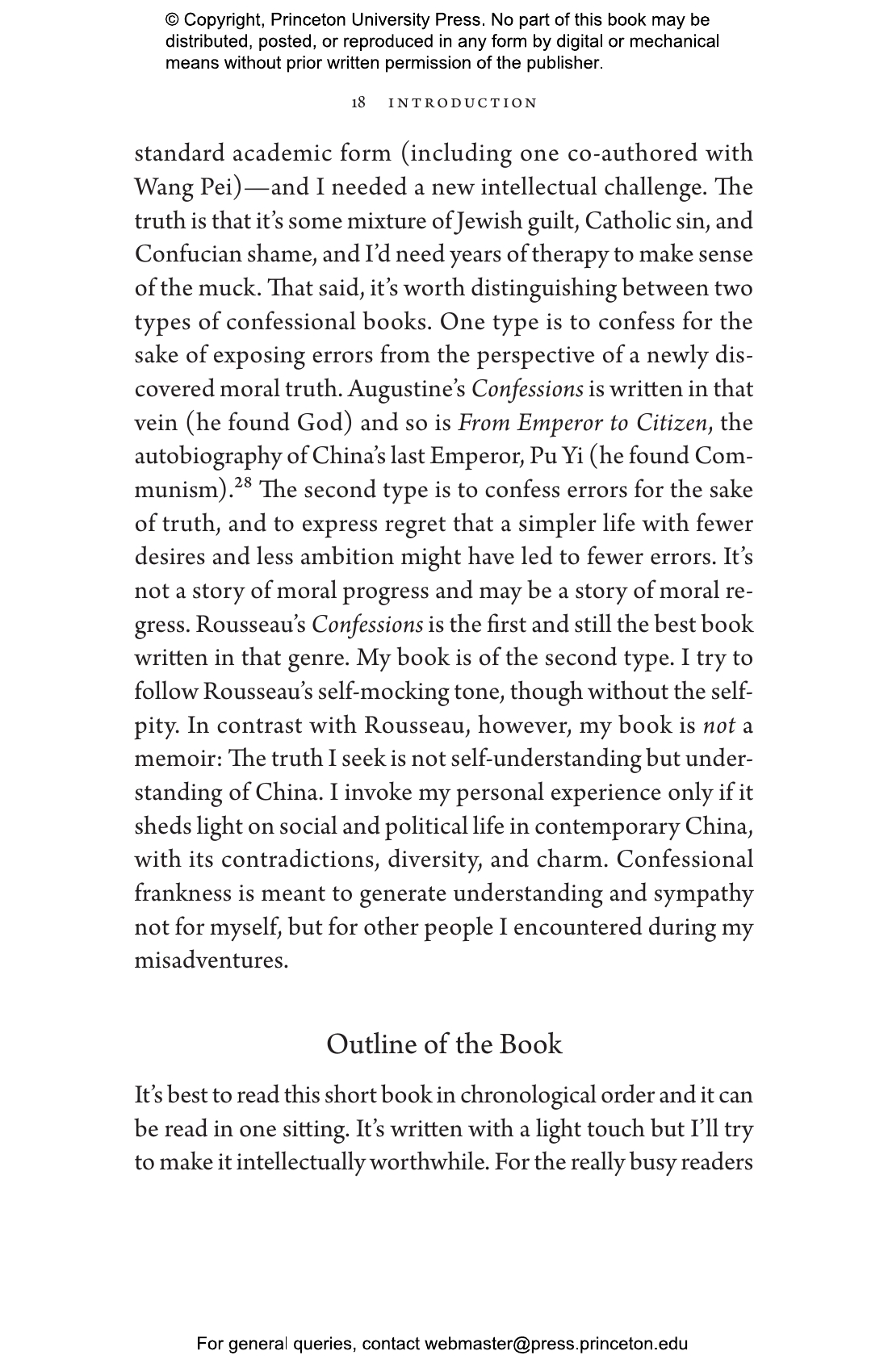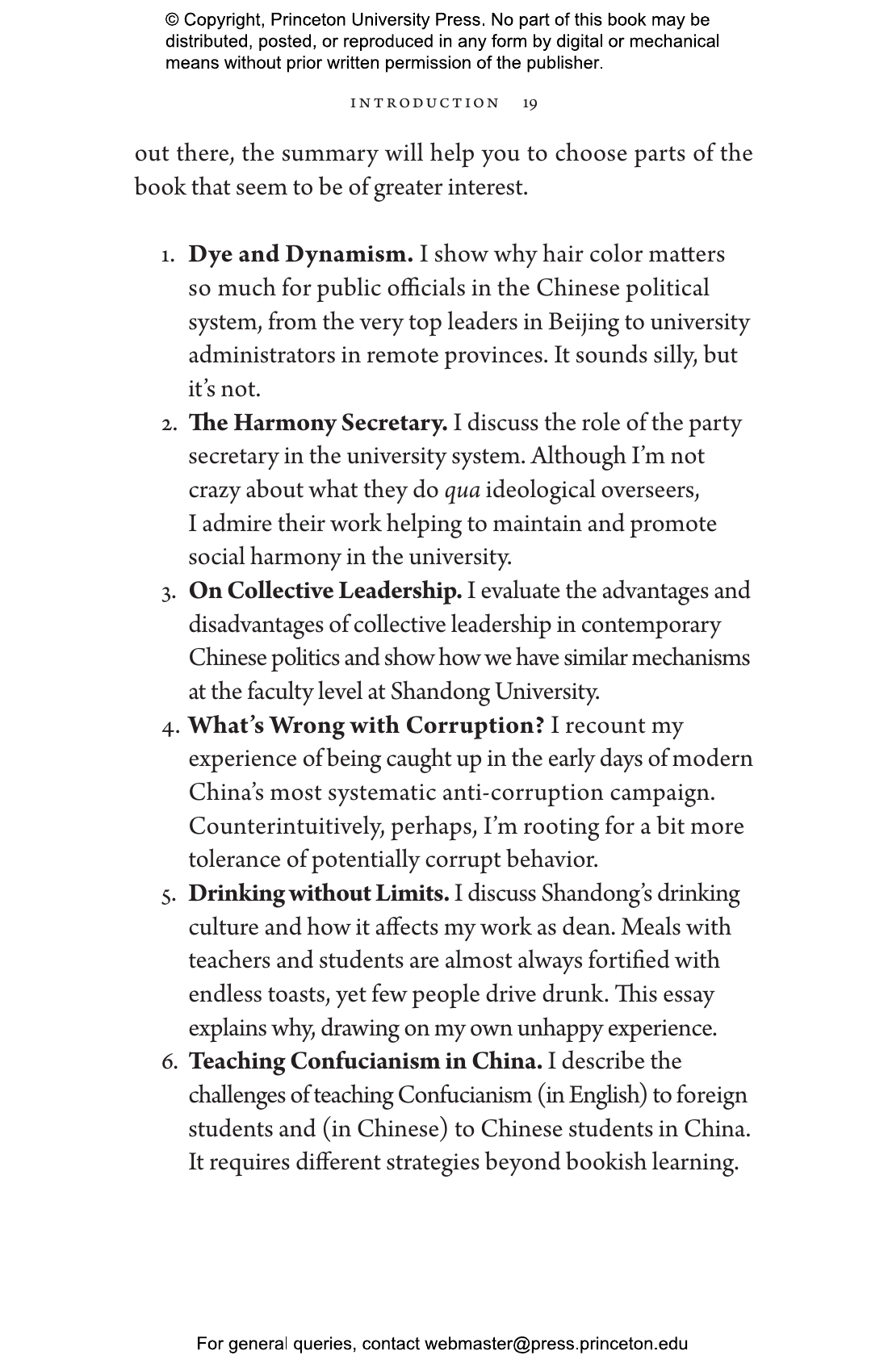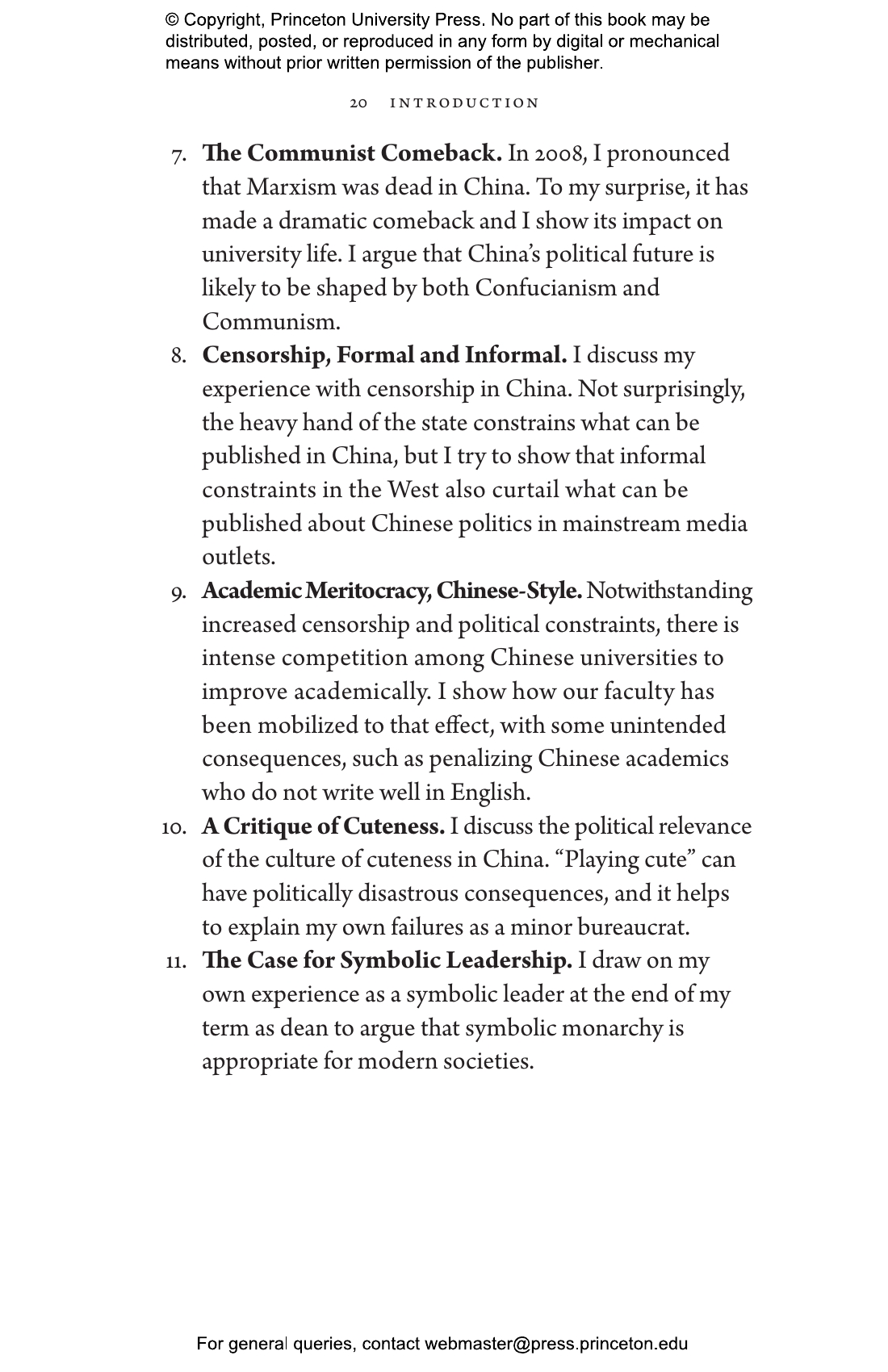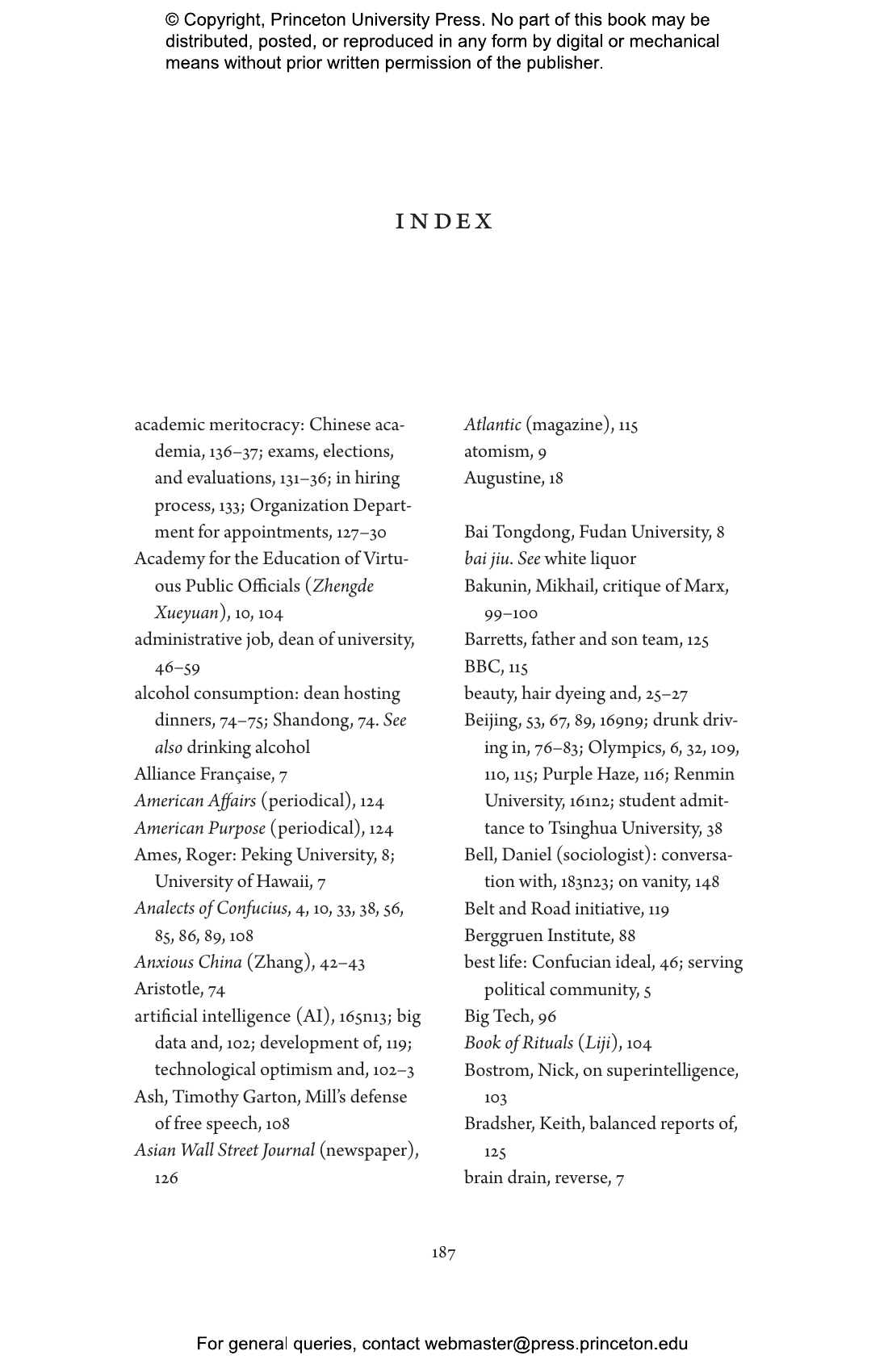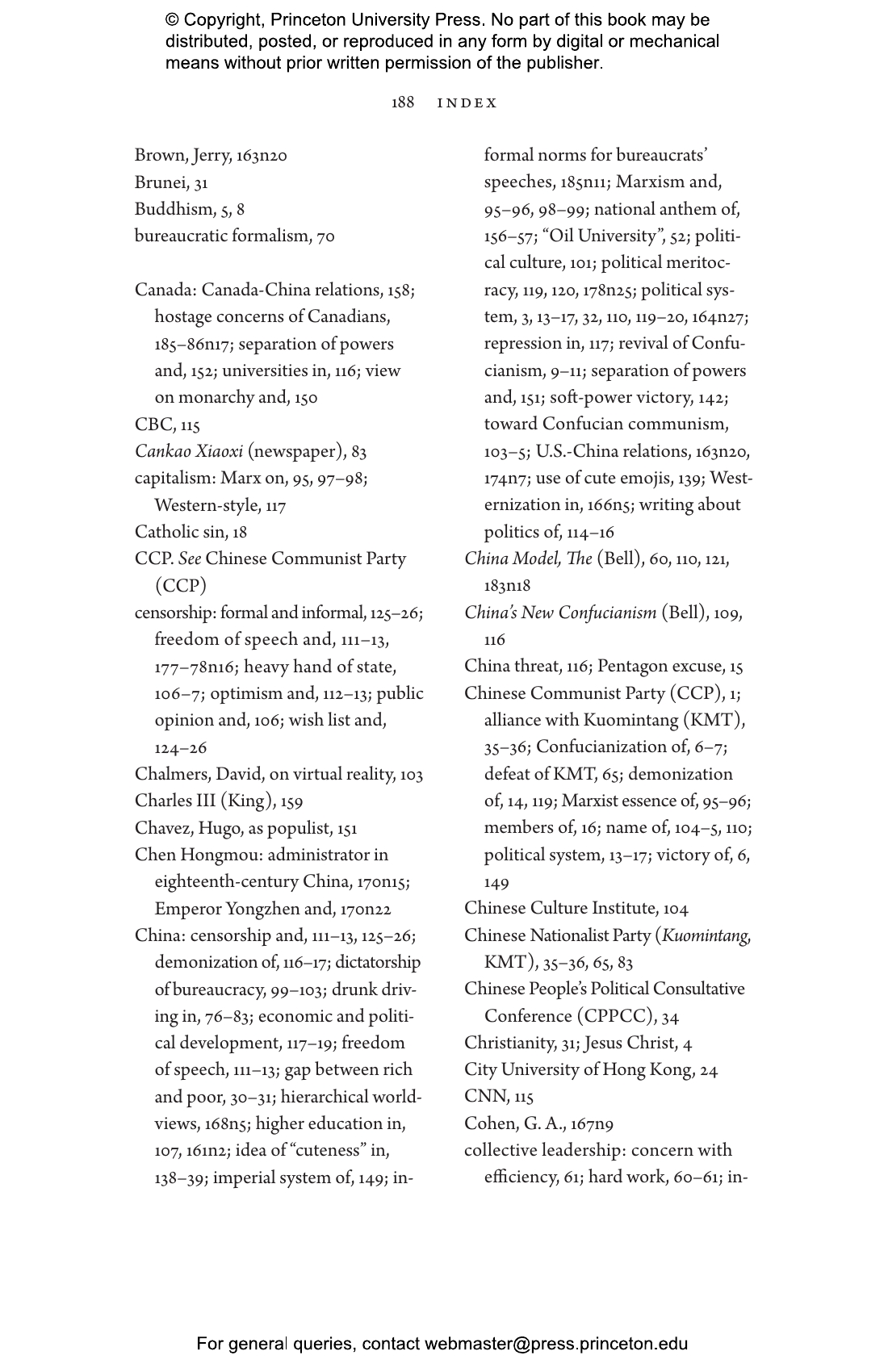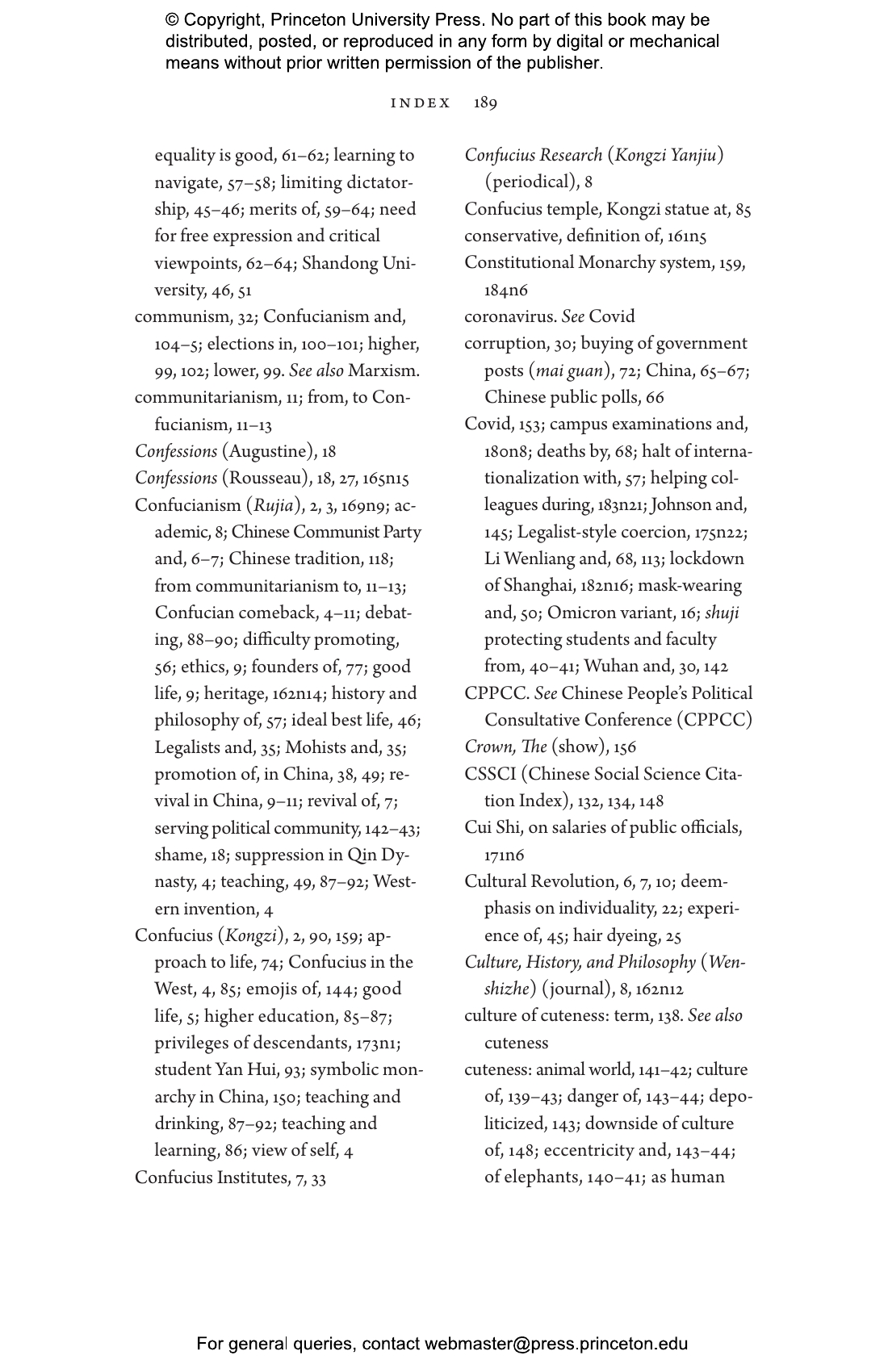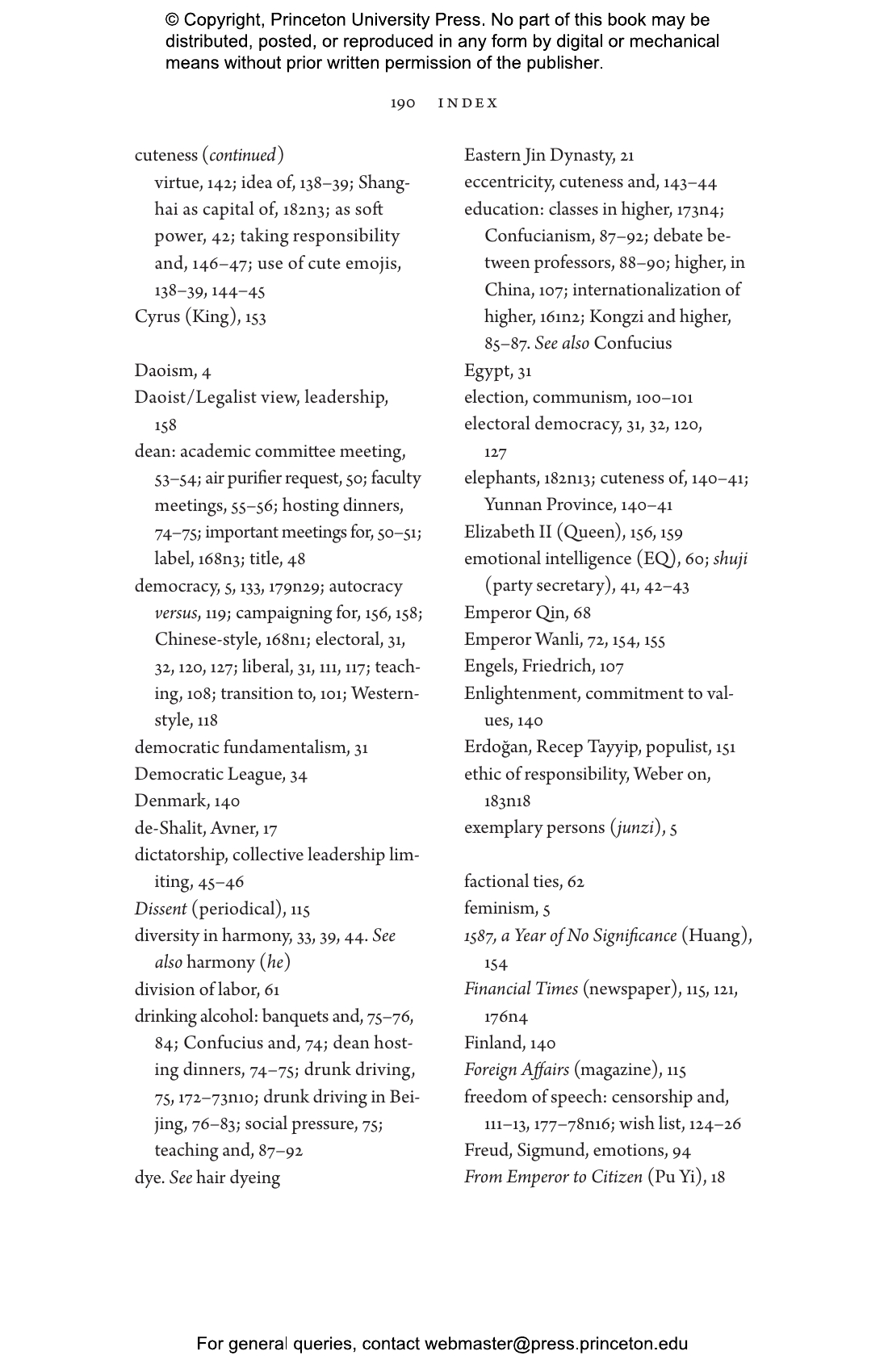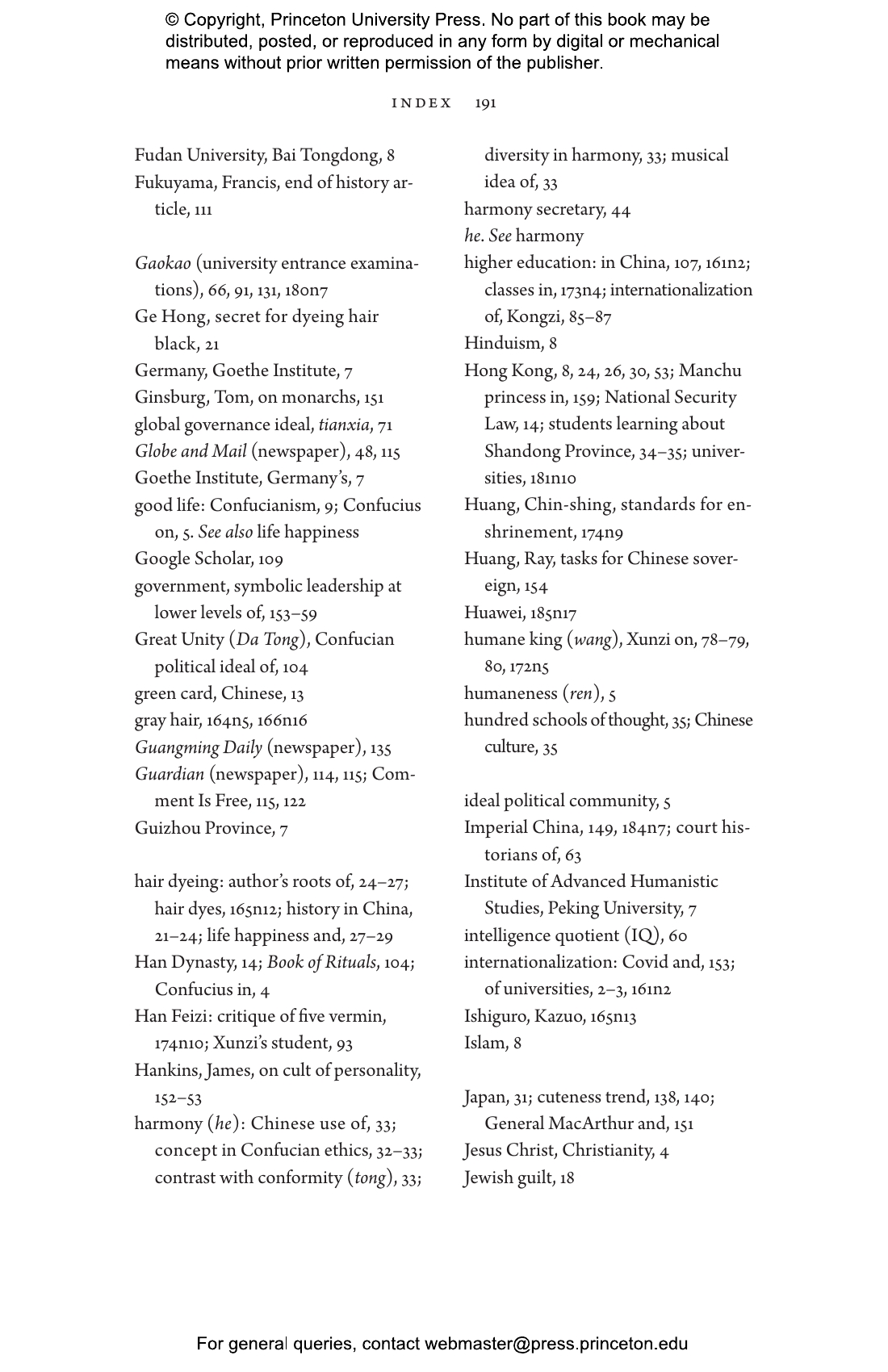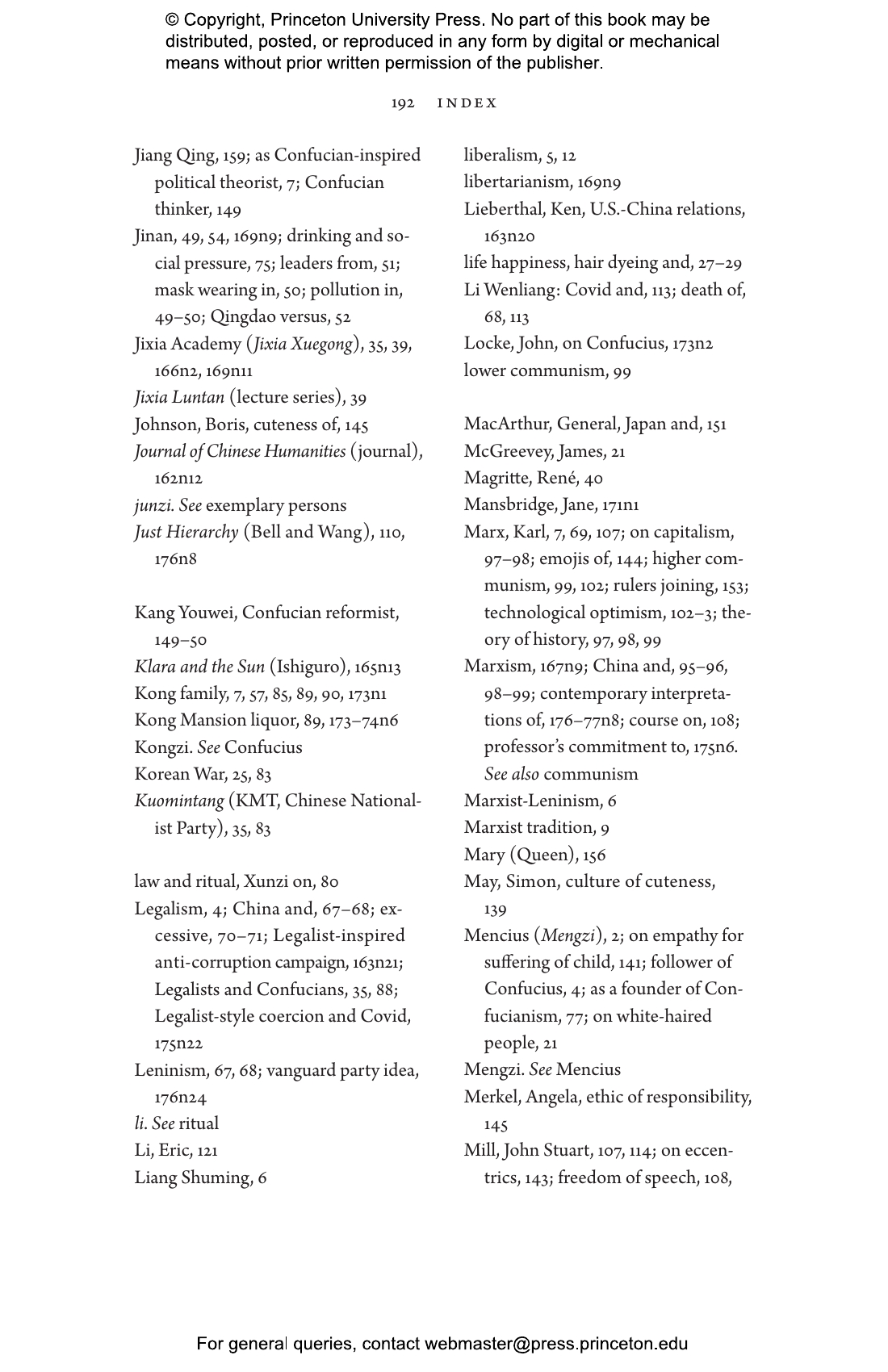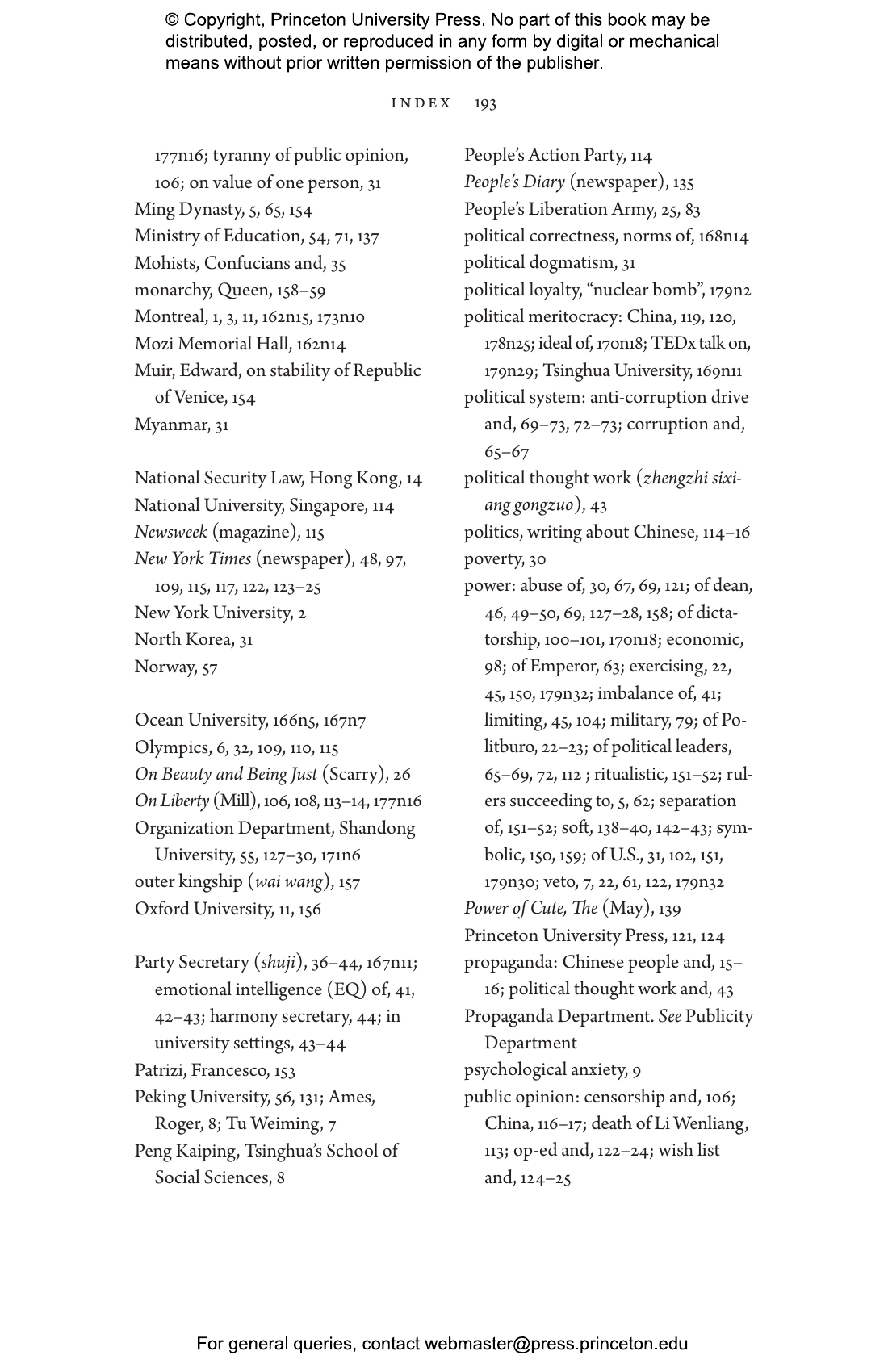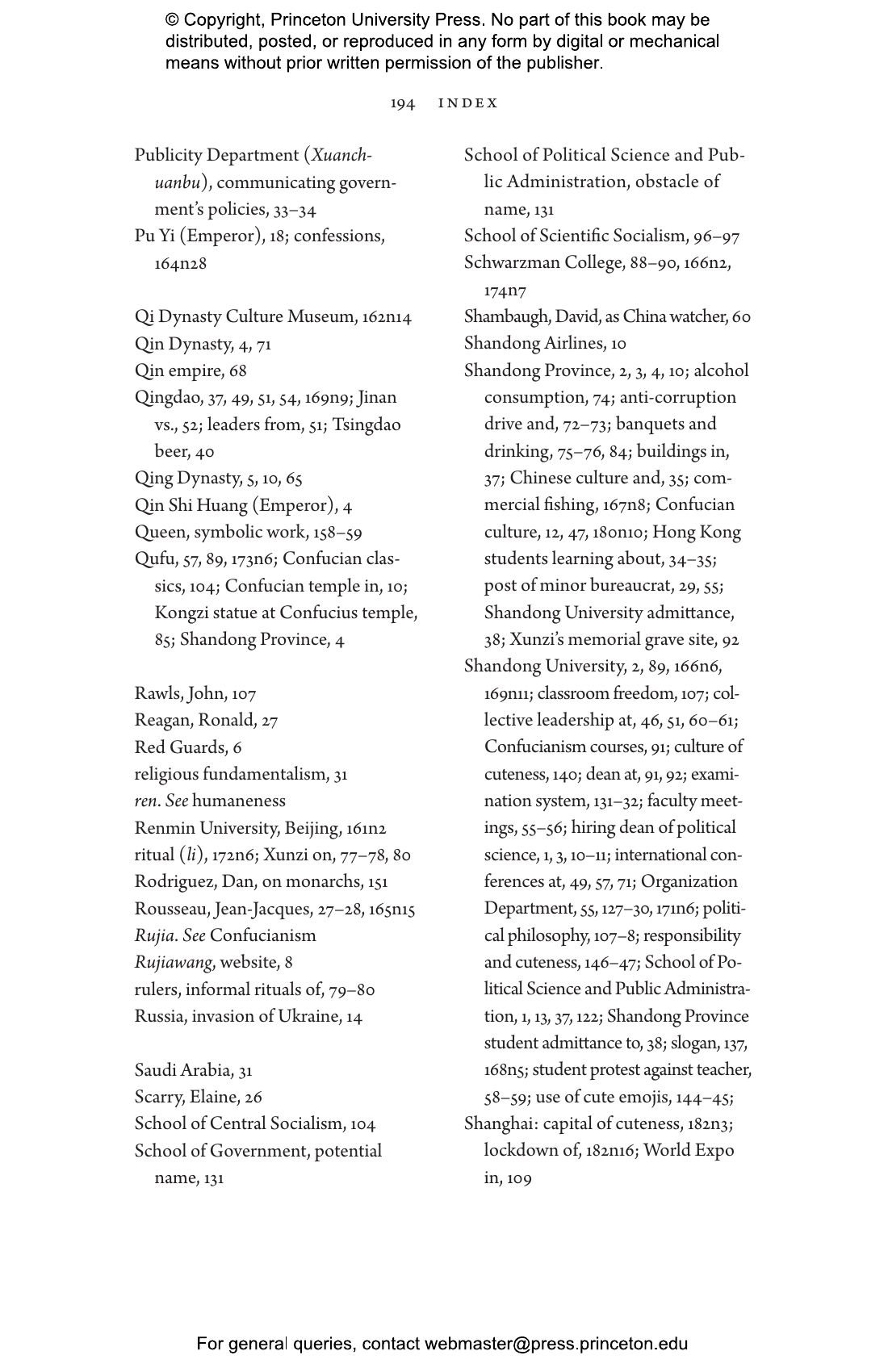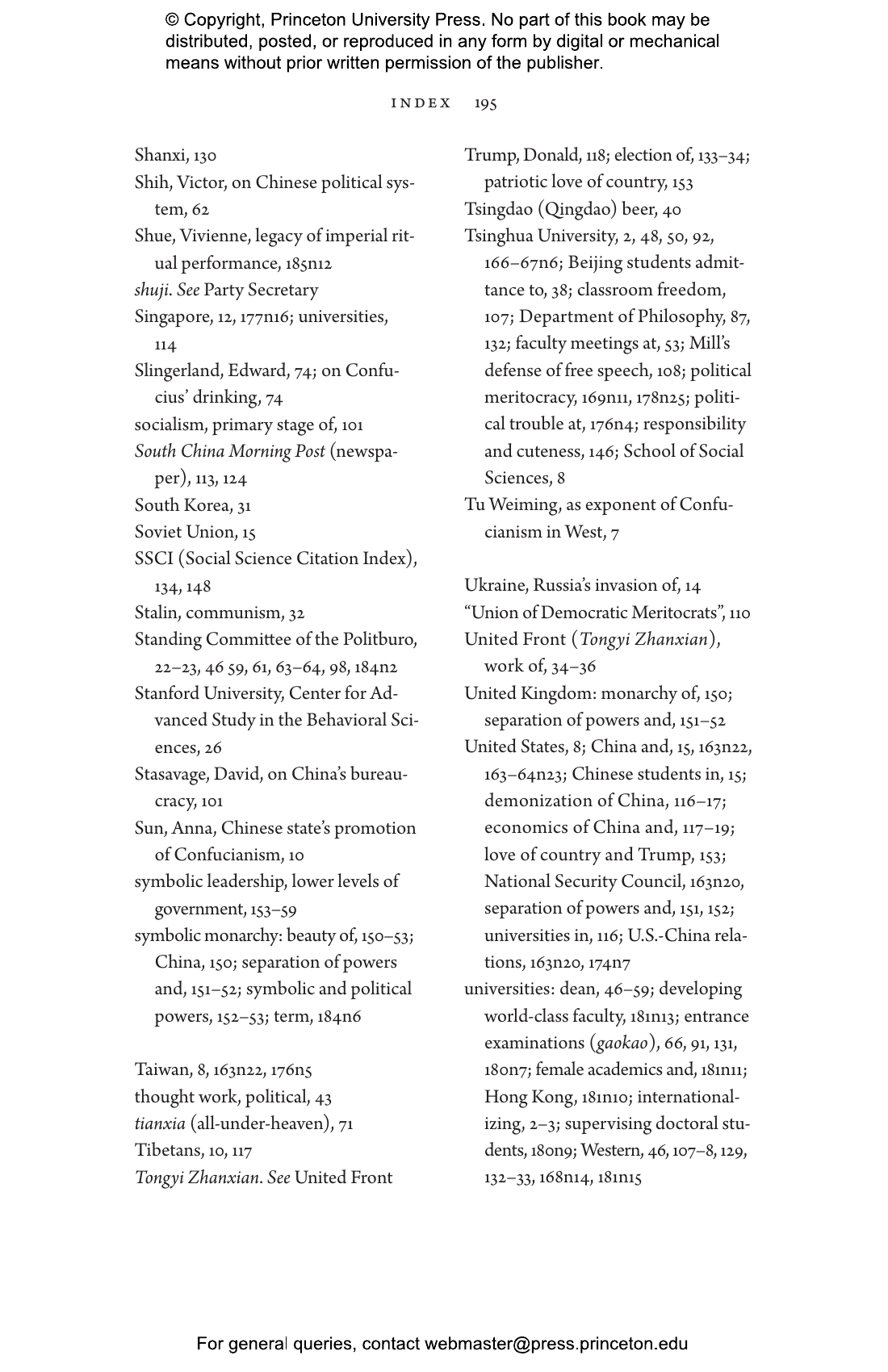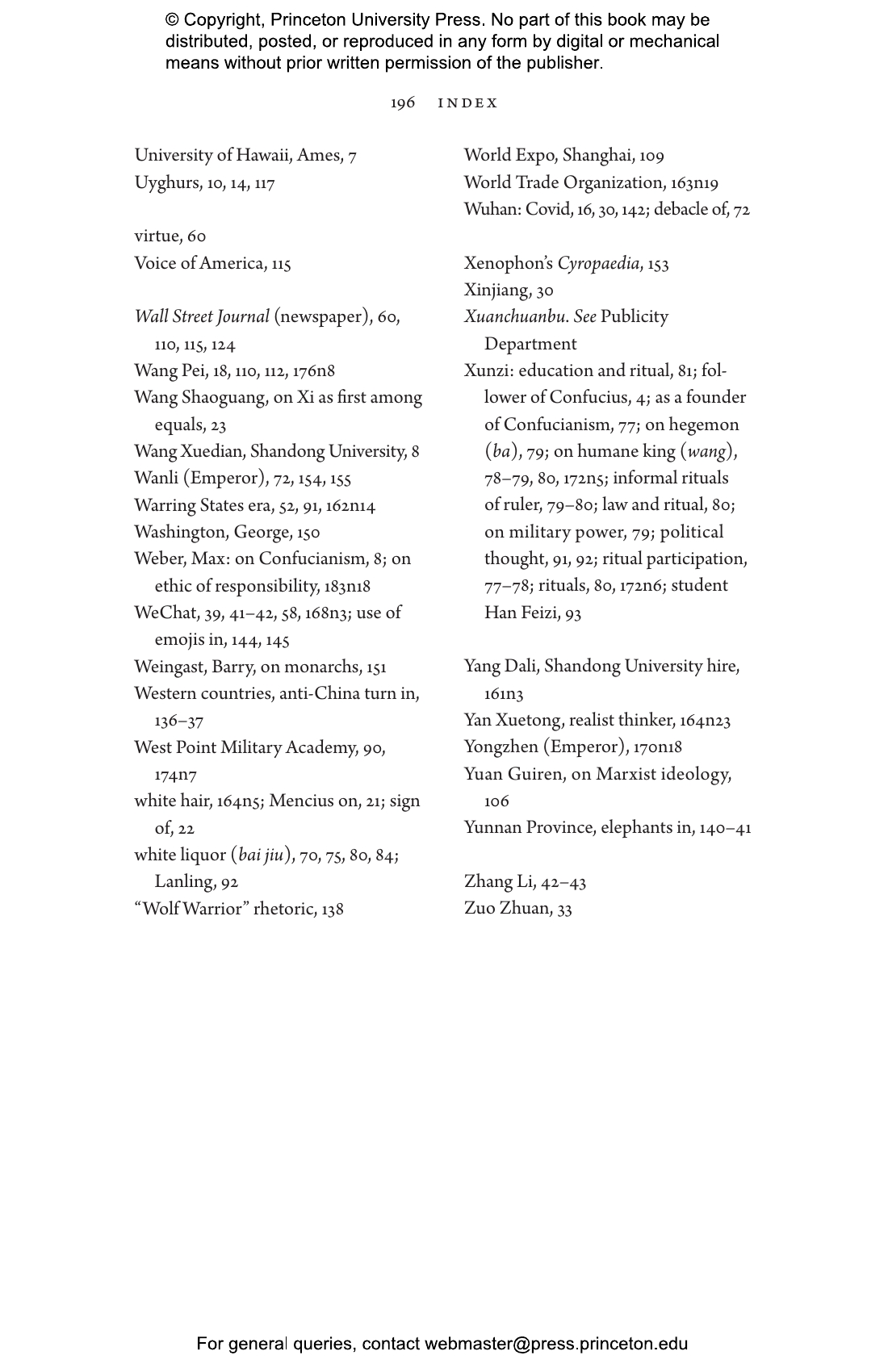On January 1, 2017, Daniel Bell was appointed dean of the School of Political Science and Public Administration at Shandong University—the first foreign dean of a political science faculty in mainland China’s history. In The Dean of Shandong, Bell chronicles his experiences as what he calls “a minor bureaucrat,” offering an inside account of the workings of Chinese academia and what they reveal about China’s political system. It wasn’t all smooth sailing—Bell wryly recounts sporadic bungles and misunderstandings—but Bell’s post as dean provides a unique vantage point on China today.
Bell, neither a Chinese citizen nor a member of the Chinese Communist Party, was appointed as dean because of his scholarly work on Confucianism—but soon found himself coping with a variety of issues having little to do with scholarship or Confucius. These include the importance of hair color and the prevalence of hair-dyeing among university administrators, both male and female; Shandong’s drinking culture, with endless toasts at every shared meal; and some unintended consequences of an intensely competitive academic meritocracy. As dean, he also confronts weightier matters: the role at the university of the Party secretary, the national anticorruption campaign and its effect on academia (Bell asks provocatively, “What’s wrong with corruption?”), and formal and informal modes of censorship. Considering both the revival of Confucianism in China over the last three decades and what he calls “the Communist comeback” since 2008, Bell predicts that China’s political future is likely to be determined by both Confucianism and Communism.
Awards and Recognition
- A Financial Times Best Summer Book
- A Financial Times Best Book of the Year- Politics
"A perceptive and often funny account of operating inside the [Chinese political] system."—Gideon Rachman, Financial Times
"Bell places the minutiae of academic administration in the context of China’s post-Cultural Revolution attempt to reinstate a ‘complex bureaucratic system informed by the ideal of political meritocracy.’ His depiction of this goal’s uneven achievement is enriched by anecdotes about censorship, corruption, the importance of seemingly frivolous aesthetic matters, Shandong’s drinking culture, and the occasionally comic failures of Chinese institutions to convey their aims abroad."—The New Yorker
"The Dean of Shandong wonderfully weaves together Bell’s deep knowledge of Chinese thought, political institutions, and everyday life in an extremely accessible style."—Paul J. D’Ambrosio, Los Angeles Review of Books
"An insightful memoir of the author’s time as an administrator at a Chinese university. . . . Bell's book is at times frank, perceptive and wryly amusing."—James Crabtree, Financial Times
"[A] terrific book. . . . A very entertaining and insightful short memoir of what it’s like to run part of a university, being neither a Chinese citizen nor a member of the Party, and having to deal with issues that are the kind of issues that administrators all over the world deal with—drinking, for example, not just by students, but mostly by administrators, and other issues as well. . . . The Dean of Shandong is a cool book."—William Kirby, Sinica Podcast
"[Bell] wants to encourage 'understanding and sympathy' for a people who have made extraordinary economic and social gains in only a few decades, who are mainly extremely hard working, and who share similar hopes for their families and futures as we do. We must certainly be vigilant. But, as Bell suggests, our vigilance should be tempered by humanity and the desire for engagement, not ostracism."—Richard Horton, The Lancet
"Fascinating insight into life in China from the perspective of a non-Chinese academic. Bell offers a frank assessment of the realities of being a scholar in China. . . . Highly recommended for anyone interested in academia in present-day China."—Library Journal
"Bell gives nuanced and sophisticated details about the logic of the daily functioning of the Chinese political meritocracy. . . . Bell also shares his experience of daily collective leadership at Shandong University and offers perceptive insider viewpoints. . . . Overall, this is a very readable book written from a ’progressive conservative perspective.’"—Haimo Li, Dao
"Daniel A. Bell was the first foreign dean of a politics faculty in a mainstream, mainland Chinese university; he therefore has a unique story to tell. It is a revealing story, combining Bell’s recollections with his analysis of what went on under the surface in a specific Chinese organisation, together with other topics that are part of the life of a dean in any university. . . . Overall, this book brings to life many aspects of organisational life in China as well giving an insight into the personal career of a leading scholar of China when faced with a unique opportunity and challenge."—Martin Lockett, Asian Affairs
"[A] riveting, unapologetically humorous read. . . . Bell takes a remarkably nuanced approach in his social commentary—which is neither bombastic nor patronising. . . . On topics such as corruption and accountability mechanisms, Bell offers more sophisticated musings than can be found across much of the reductionist, existing discourse."—Brian Wong, China-US Focus
"A new memoir from a Westerner living as a bureaucrat in China's education system has important lessons for America. . . . [Bell] gives Western readers a unique vision into the new China."—Jesse Russell, American Conservative
"A unique contribution to our understanding of China’s higher education system and to the field of Chinese studies more generally."—Terry Bodenhorn, China Quarterly
"Informative, enlightening. . . . Highly recommended. General readers through faculty."—Choice Reviews
"Fair and honest in its judgments, [The Dean of Shandong] offers readers a sympathetic but objective view of academic and social life in China and is a welcome corrective to the unhinged narratives about China that pass for the norm today."—Shuchen Xiang, Philosophy East and West
"Bell’s account is amusing and enjoyable, from his description of the use of emojis in messages between colleagues, to his decision to dye his hair in order to fit in. Bell offers useful insights into ideology, politics and how China might be better understood. . . . Highly readable and informative."—Tim Summers, International Affairs
"Bell offers an introspective and insightful account of his deanship in Shandong, providing a rare glimpse into the inner workings of a university in mainland China through the eyes of an outsider."—Yu Tao, Asian Studies Review
"A breath of fresh air for those of us frustrated with the latest genre of studying China through abstract modes and dry data, which often yield little concrete knowledge about the country. . . . Bell's readable chapters are down-to-earth, giving readers a feeling of being there and observing in-person. Together, they paint an authentic picture of China—how individuals and organizations operate at grassroots, how things work or do not work on a daily basis, what progress and retrogression take place, and more. . . . This is the major contribution of Bell’s book: to humanize and normalize China as a country."—Yan Sun, China Review
"An enjoyable read. . . . [The Dean of Shandong] gives the reader a firsthand account of living in a country/civilization that is impossible to find in the Western media."—Saralee Turner, iAffairs
"[An] illuminating analysis of the Chinese political system today."—Mal Warwick, Mal Warwick on Books
“In The Dean of Shandong, Daniel Bell takes us where few Westerners have gone—into the faculty lounge, teaching rooms, and party meetings of a Chinese university in the era of Xi Jinping. Think Lucky Jim meets Brave New World: Bell’s account of life as a senior Western academic in a Chinese university is by turns humane, disturbing, hilarious—and always eye-opening.”—Rana Mitter, author of Forgotten Ally: China’s World War II, 1937–1945
“Daniel Bell is wry, informed, open-minded, and enlightening in his look at Chinese bureaucracy from his years on the inside. Everyone interested in China will find new insights in this terse, funny book.”—James Fallows, author of China Airborne
“A leading interpreter of the Confucian tradition, Daniel Bell takes us into the citadel of contemporary Chinese higher education. Honest and wise, entertaining and witty, he tells the story of an illustrious scholarly life that began in French Canada and Oxford and led to the deanship at Shandong University, one of the most prestigious in China. The personal narrative sparkles, but Bell also analyzes with great clarity and insight the many challenges as well as promises facing China and Chinese intellectuals in the unfolding twenty-first century.”—Anna Sun, author of Confucianism as a World Religion: Contested Histories and Contemporary Realities
“If you think a book about a ‘minor educational bureaucrat’ in provincial China must be dull, think again. This is a sparkling, compulsively readable book about how an Oxford-educated Canadian political scientist became the leading theorist of political Confucianism in China. Bell’s story is charming and filled with self-deprecating humor, but it is also remarkably courageous, given the current climate. It will leave you with a sense that you understand the Chinese and the Chinese system much better than you did before.”—James Hankins, author of Virtue Politics: Soulcraft and Statecraft in Renaissance Italy
“Bell offers a fascinating glimpse into the workings of a Chinese university as both an insider (a dean) and an outsider (a Canadian). Along the way he treats, with a light hand, the cultural and philosophical underpinnings of contemporary China. This is a book anyone interested in that country will enjoy.”—Shadi Bartsch, author of Plato Goes to China: The Greek Classics and Chinese Nationalism
“Daniel Bell has rightly earned a reputation as the dean—both literally and figuratively—of Confucian studies. But even more important is his cosmopolitan and communitarian spirit, a compelling worldview that makes him a true bridge between East and West. The wisdom of this book—as with all of Bell’s writing—is both novel and universal.”—Parag Khanna, author of The Future is Asian
